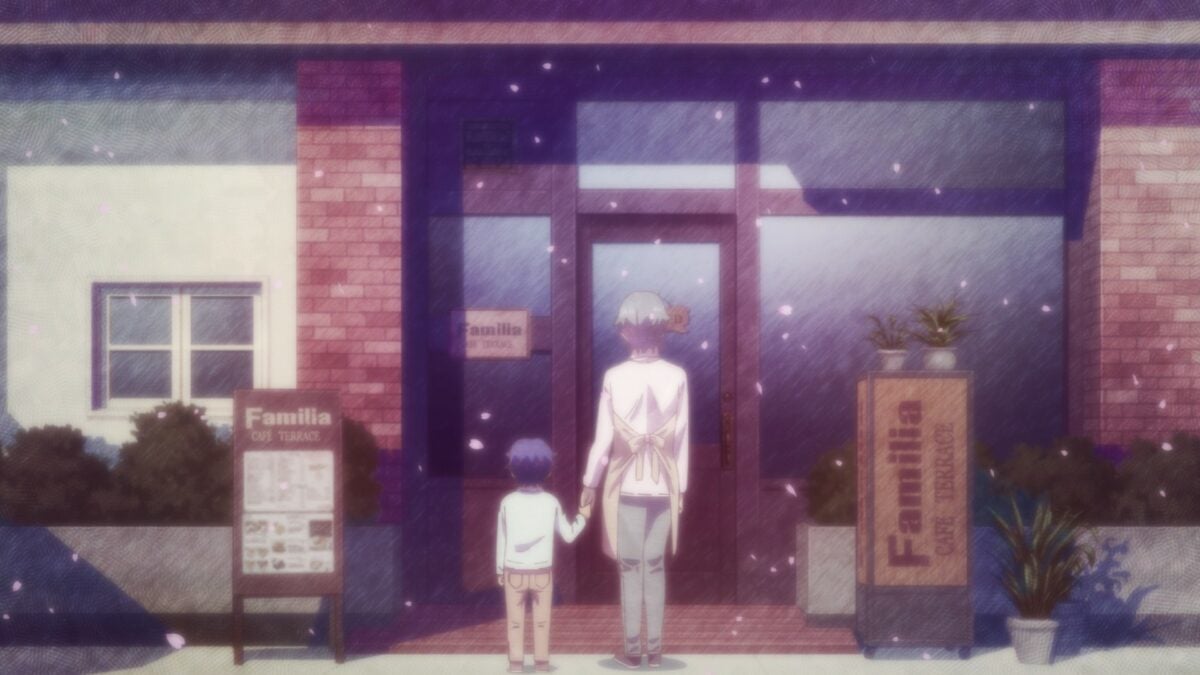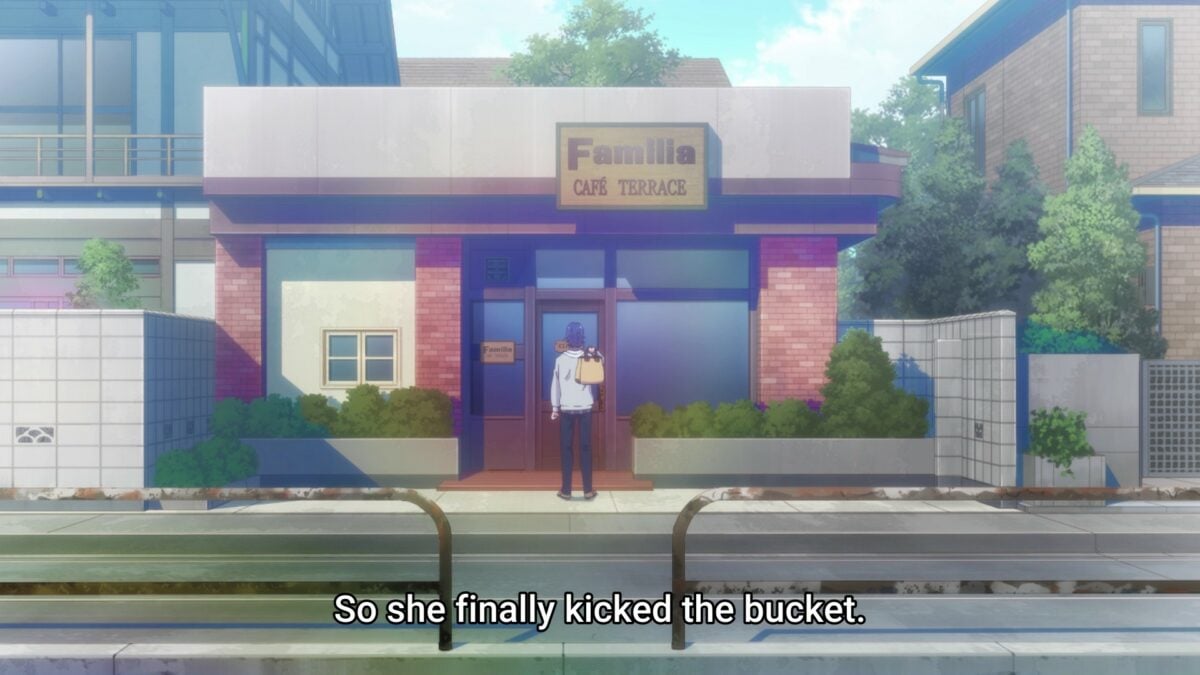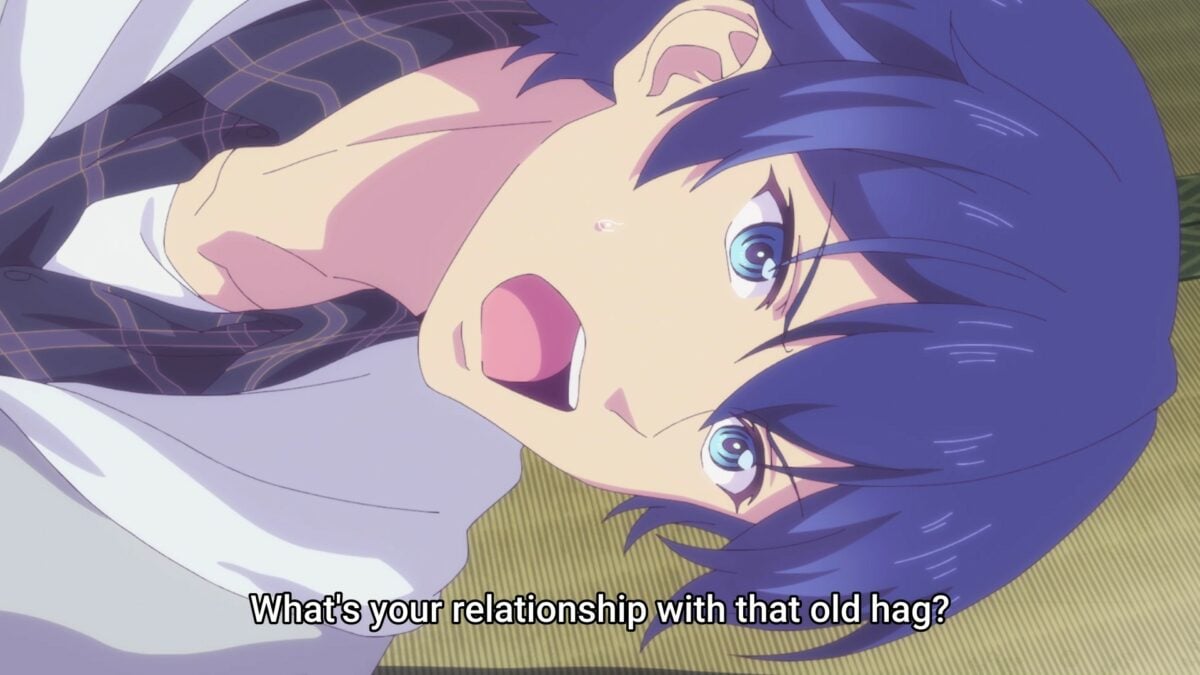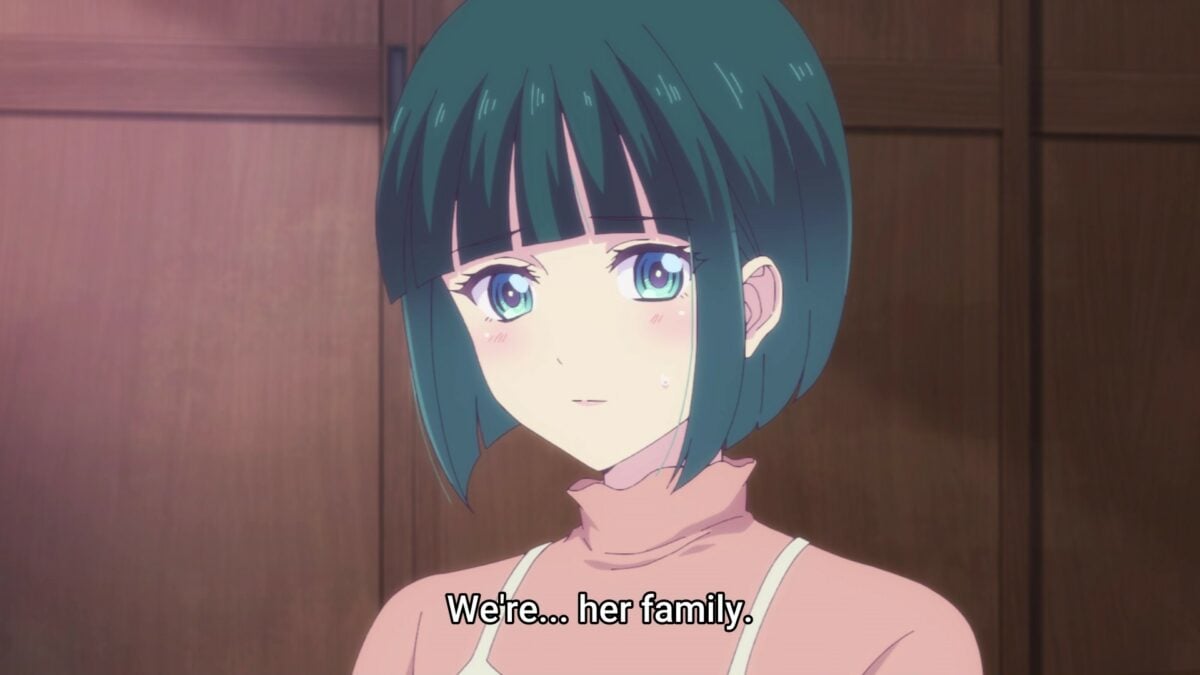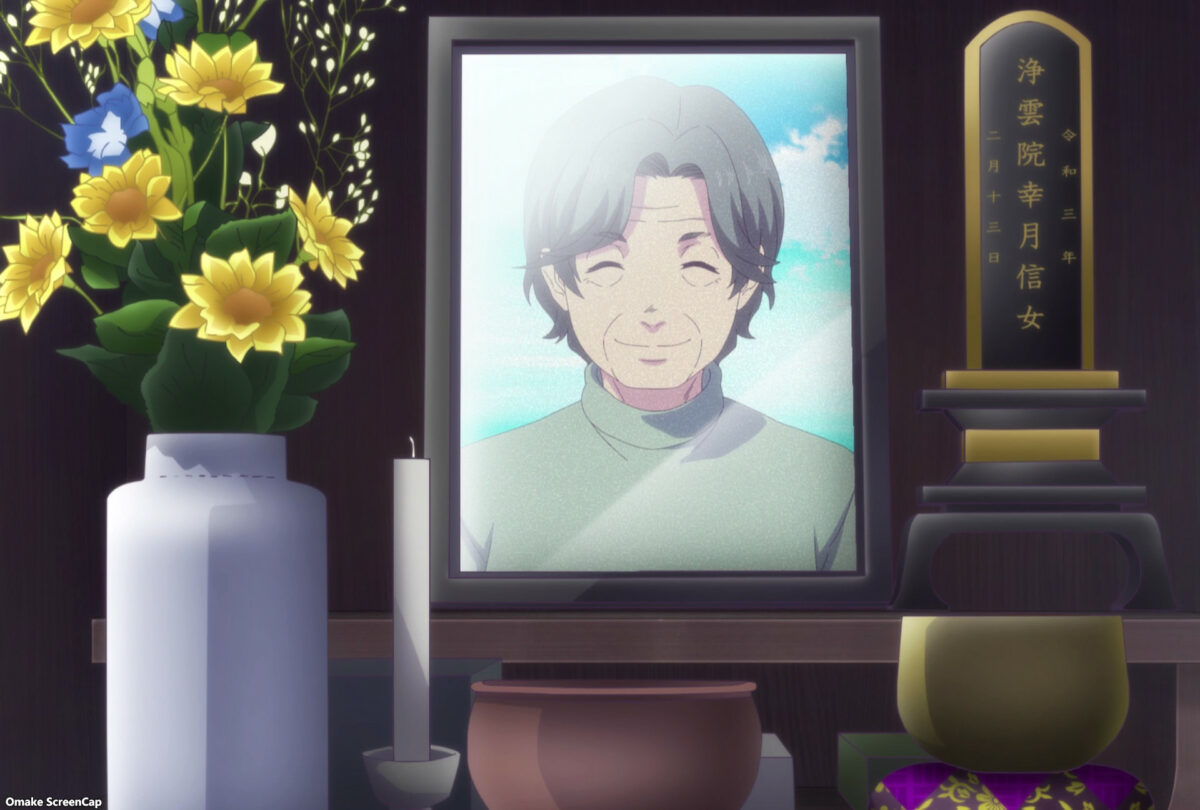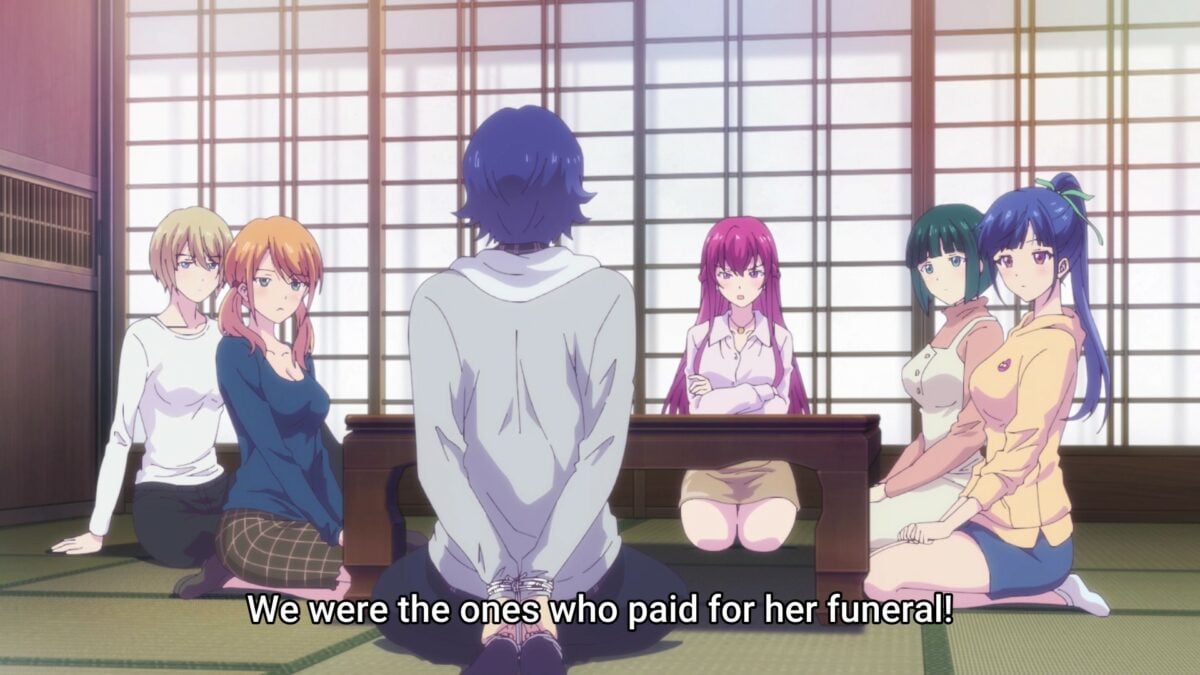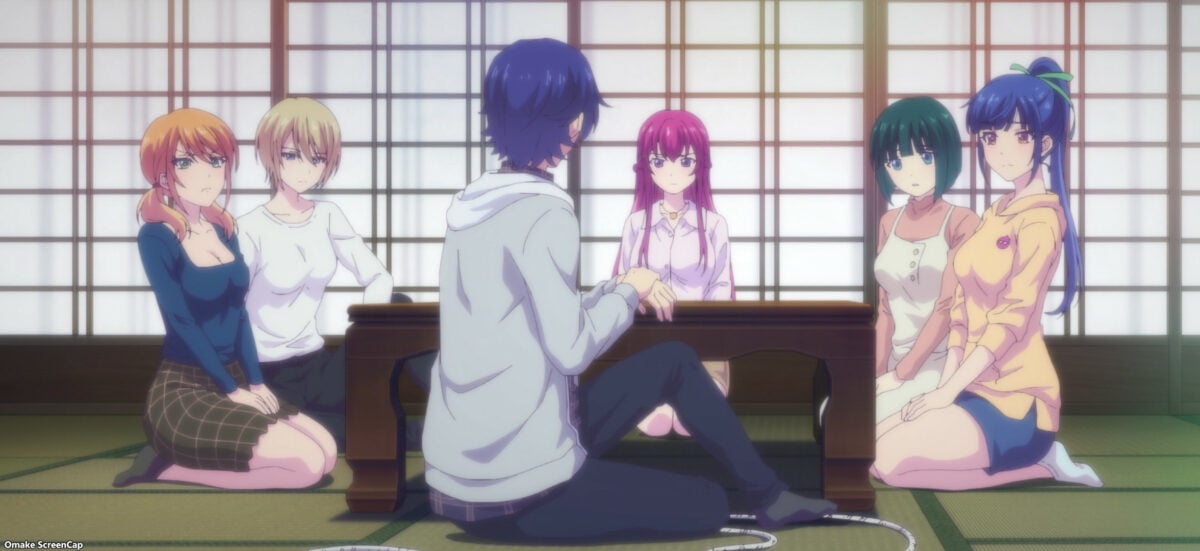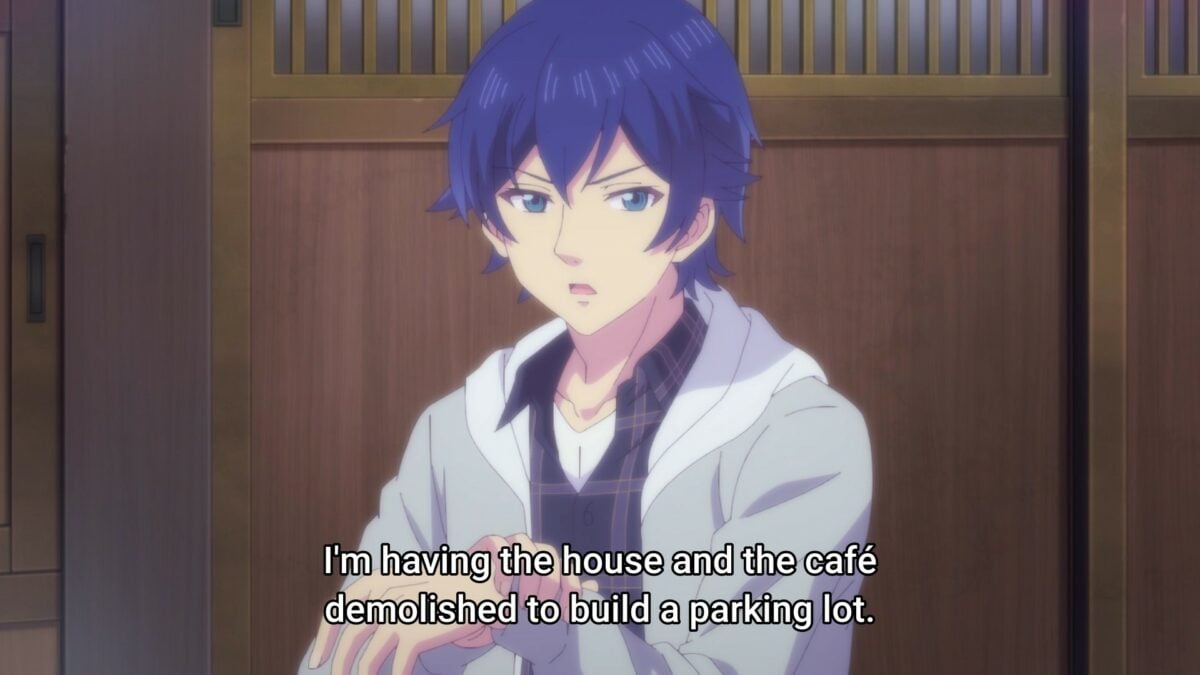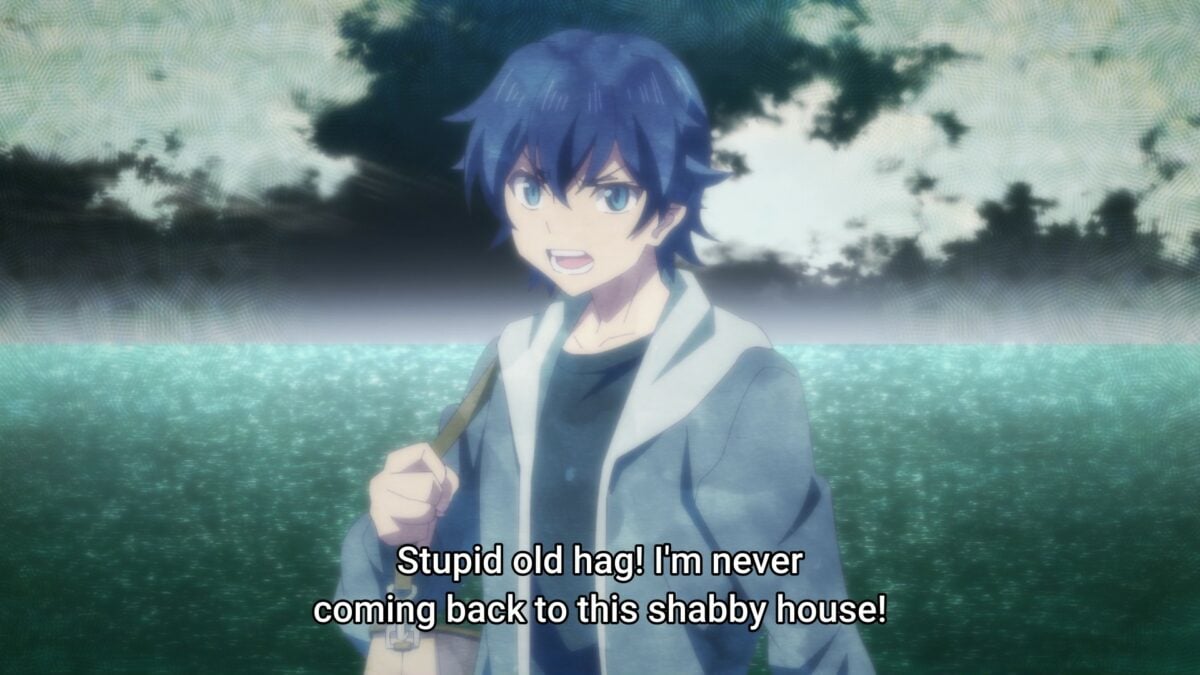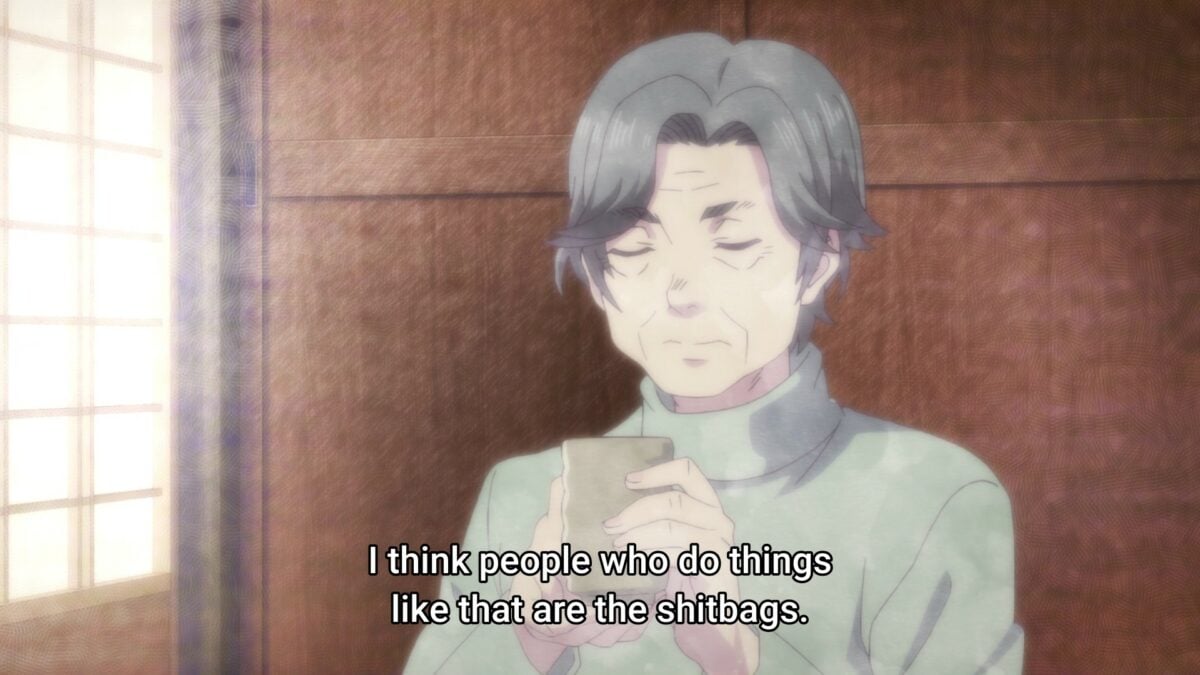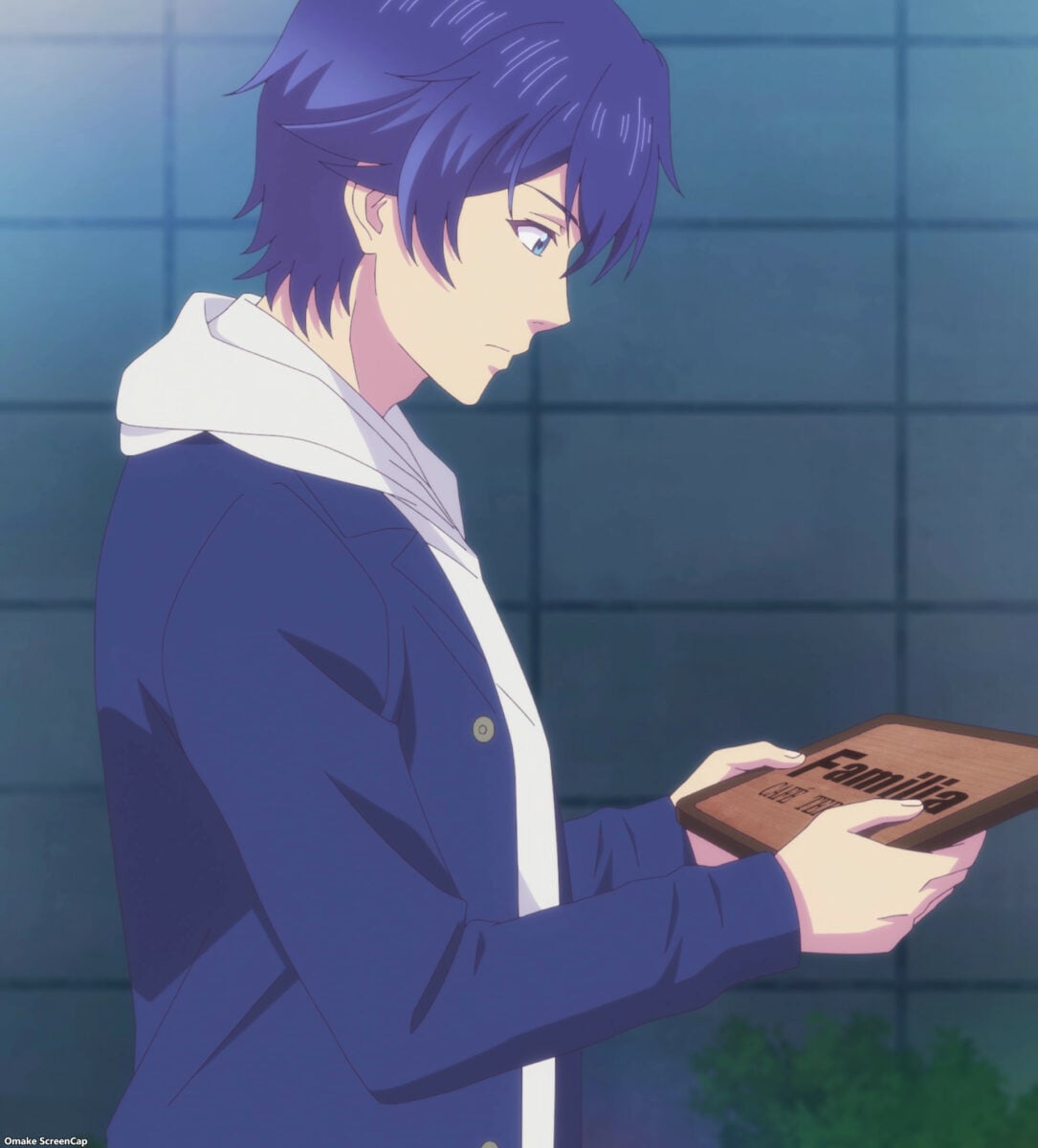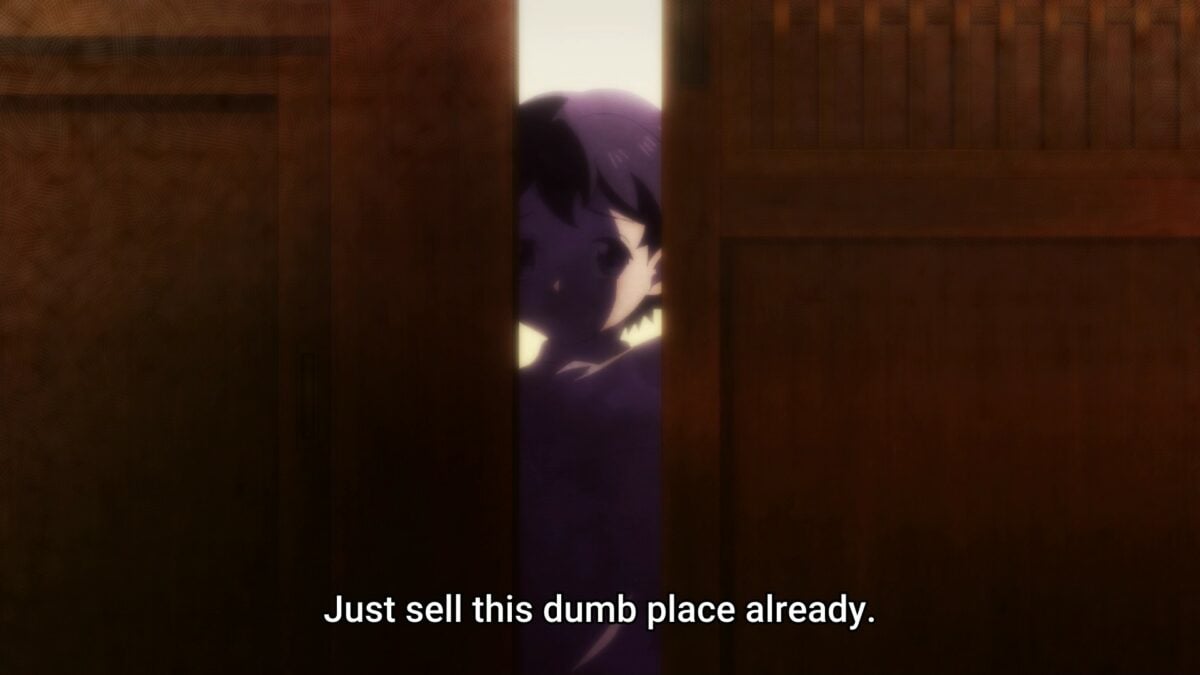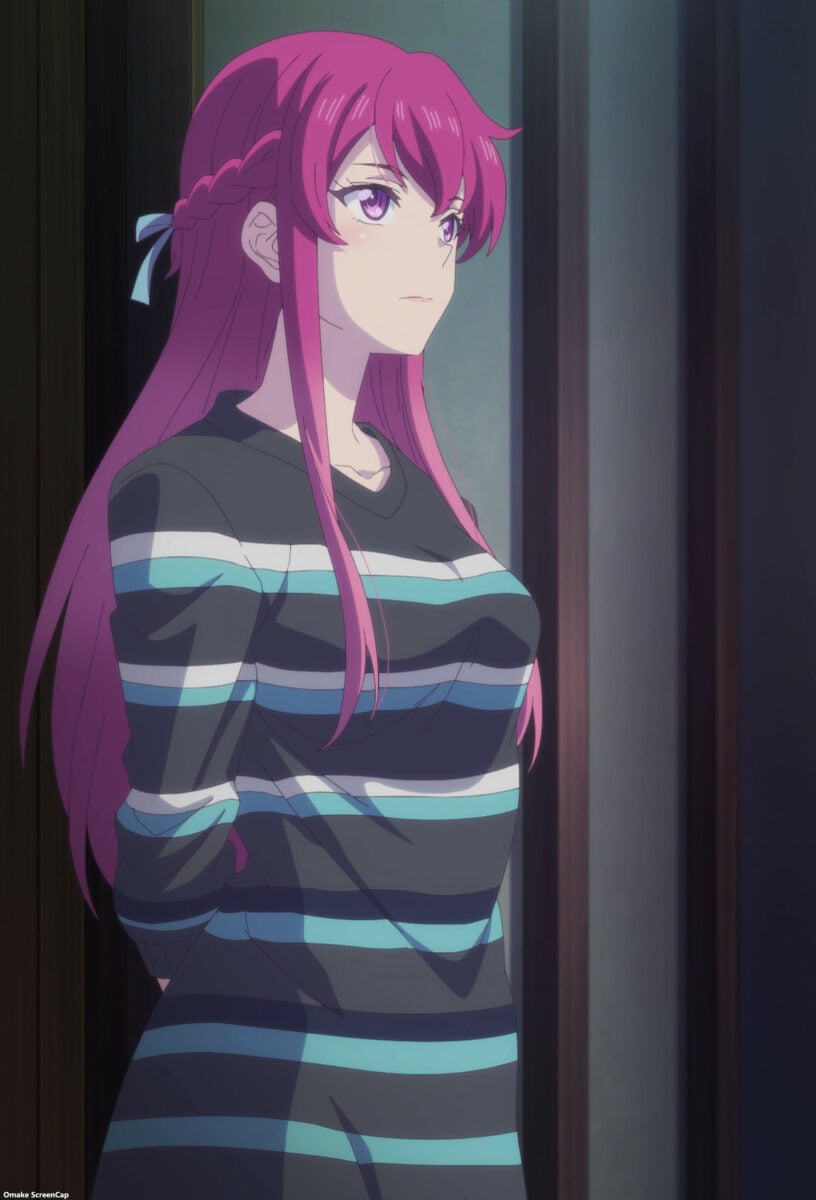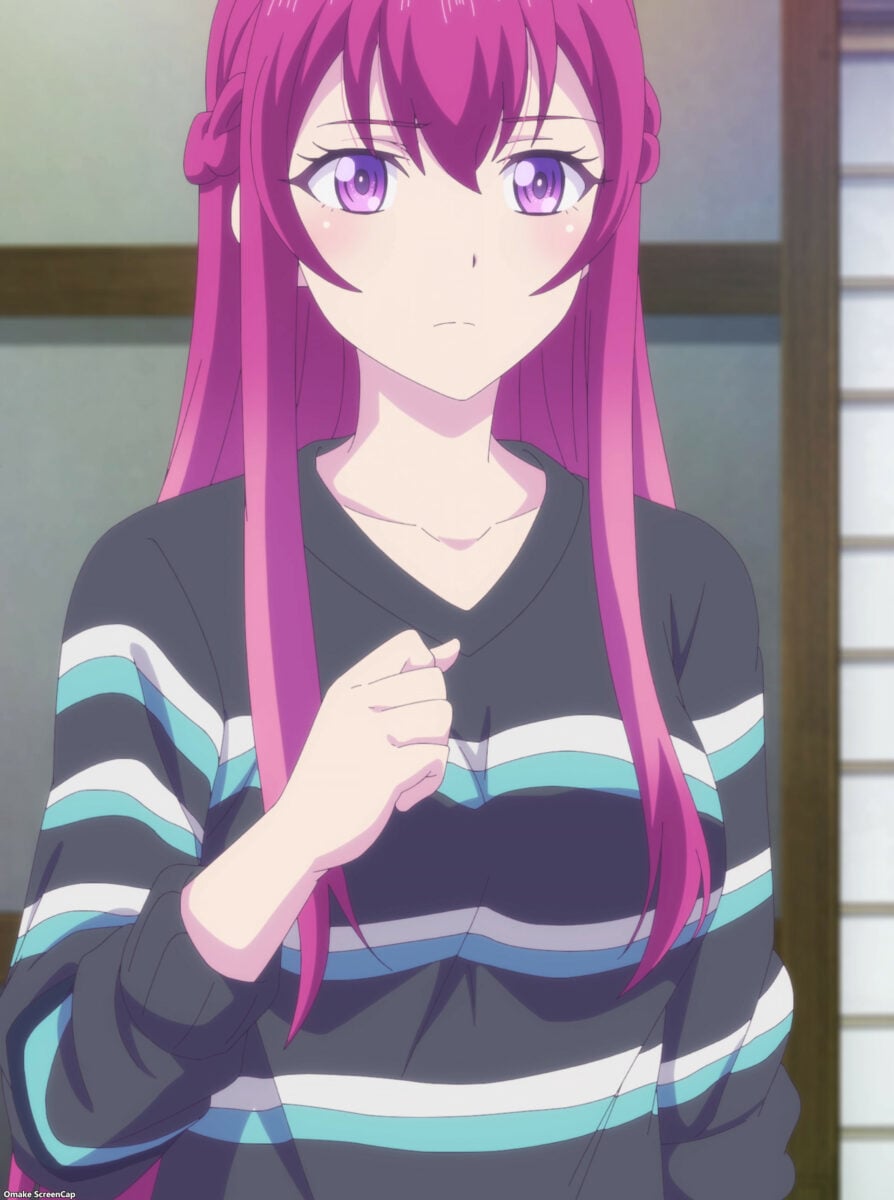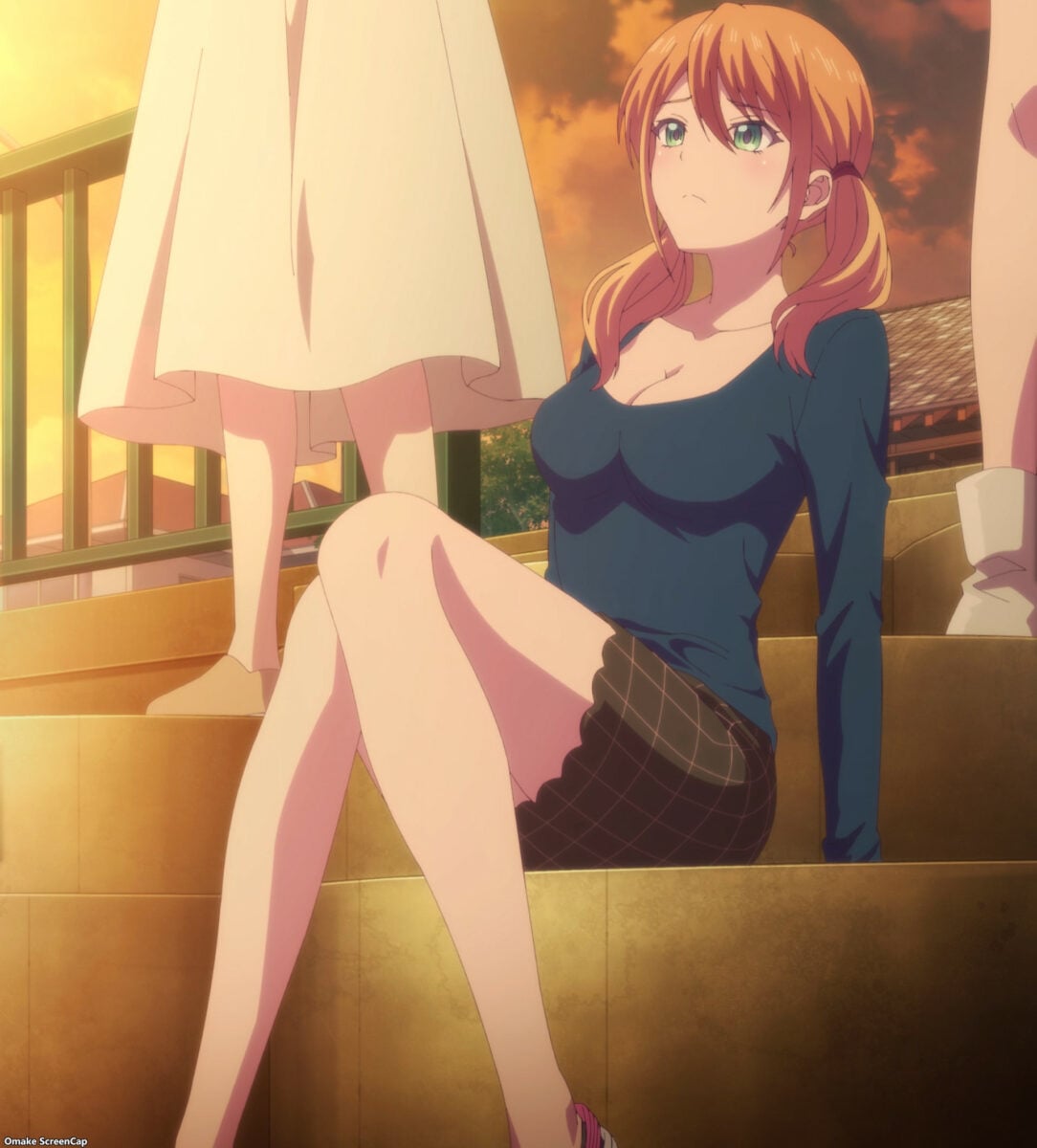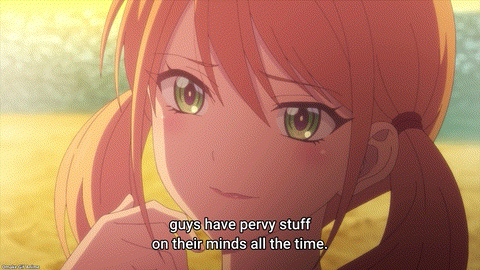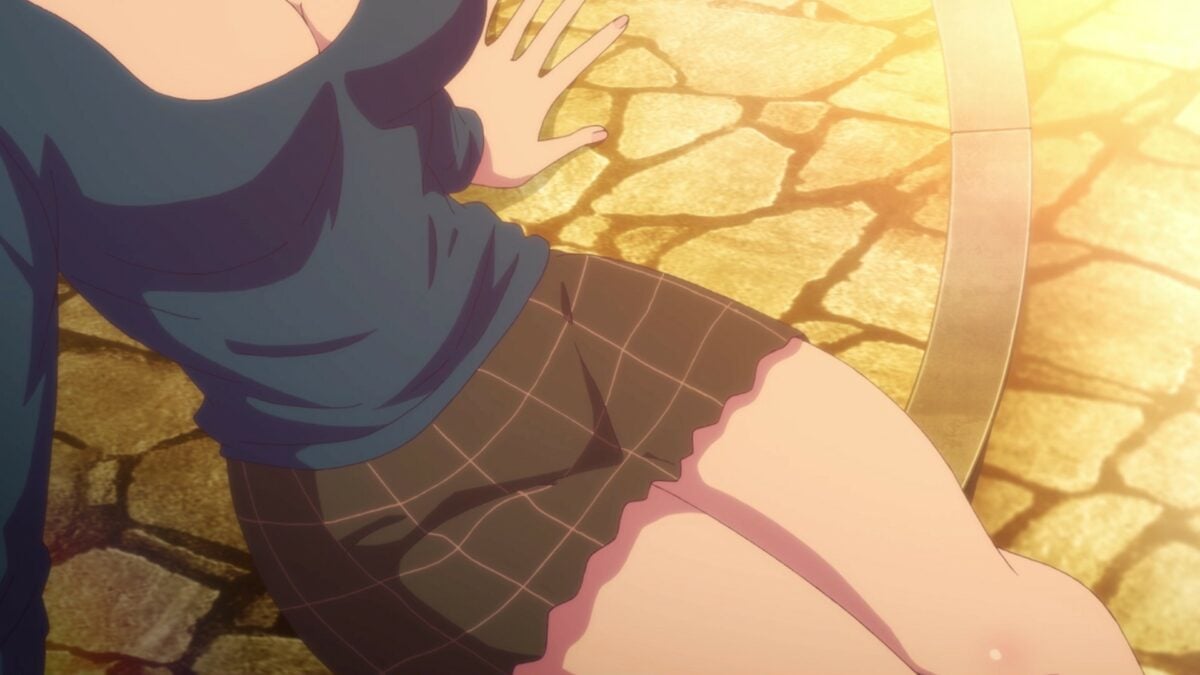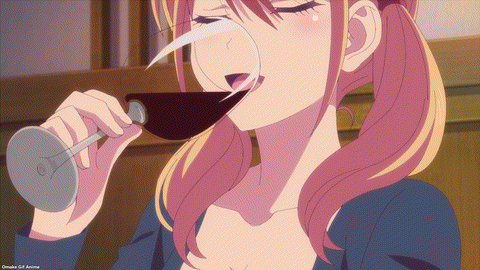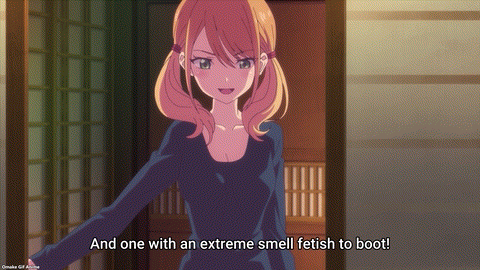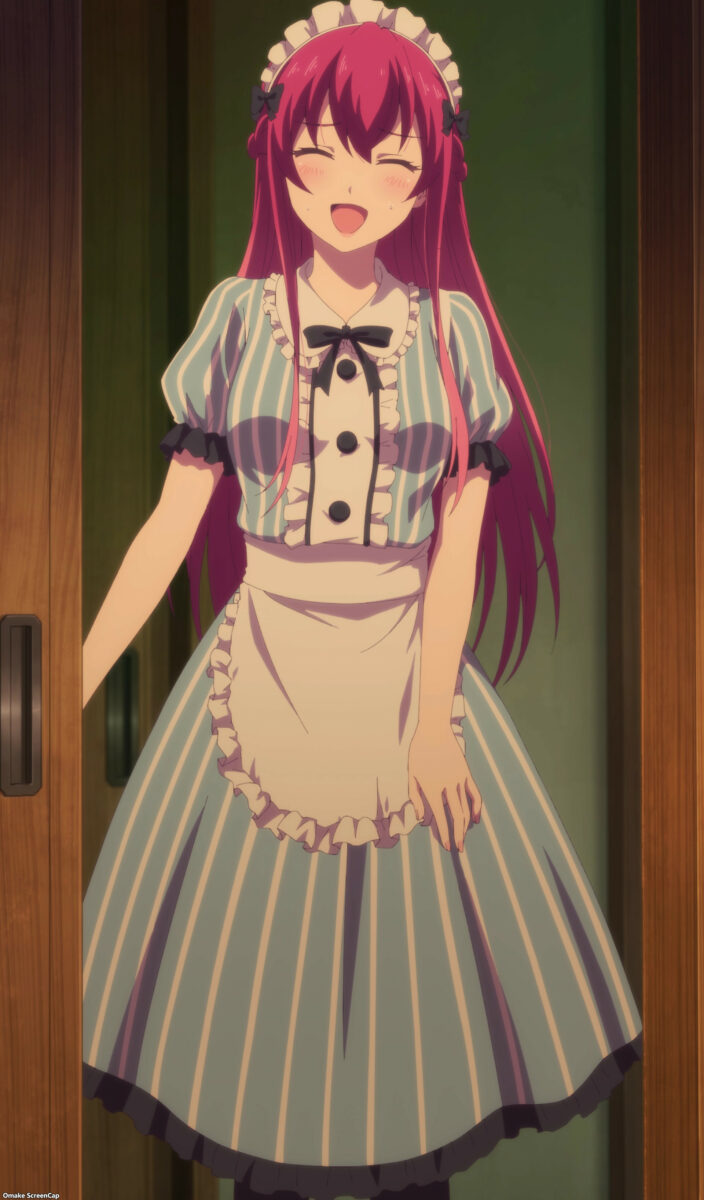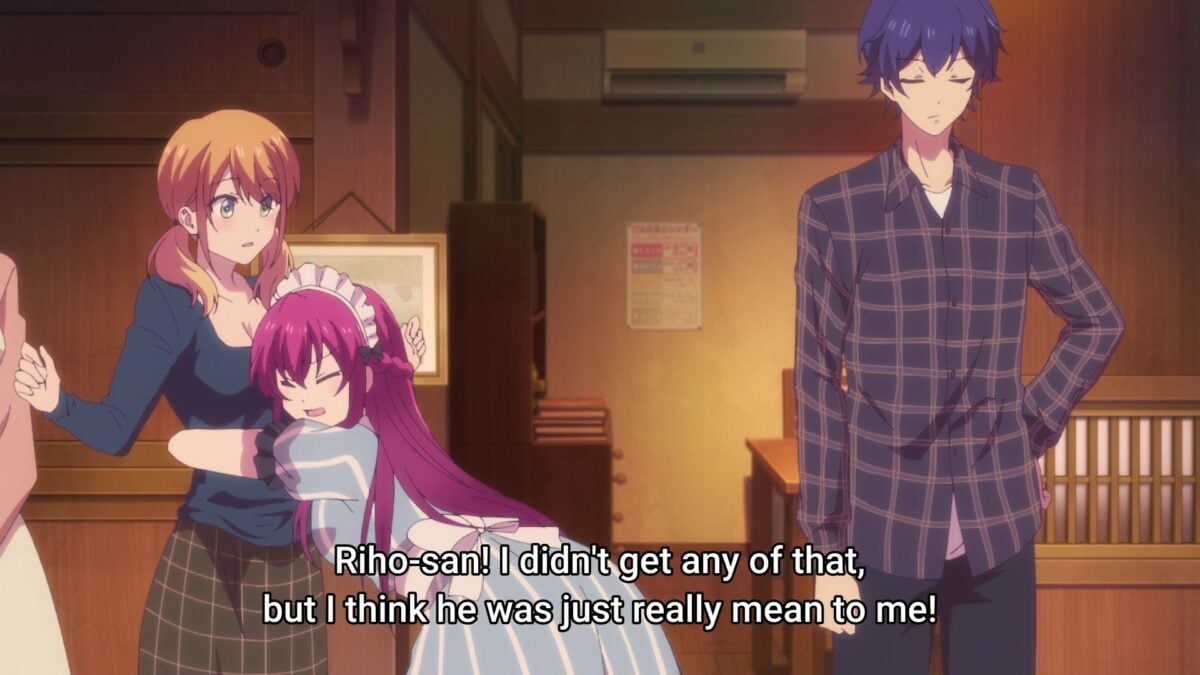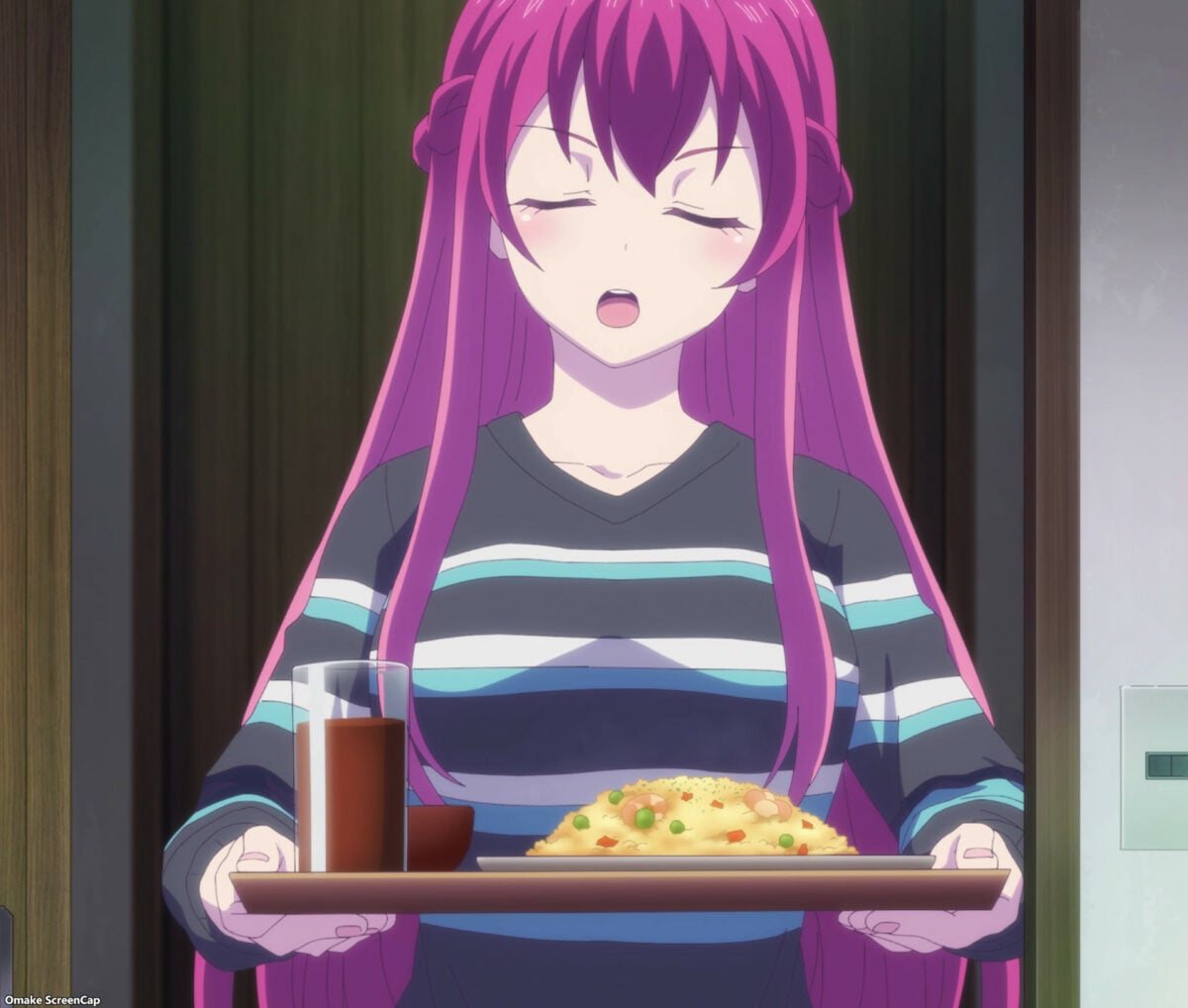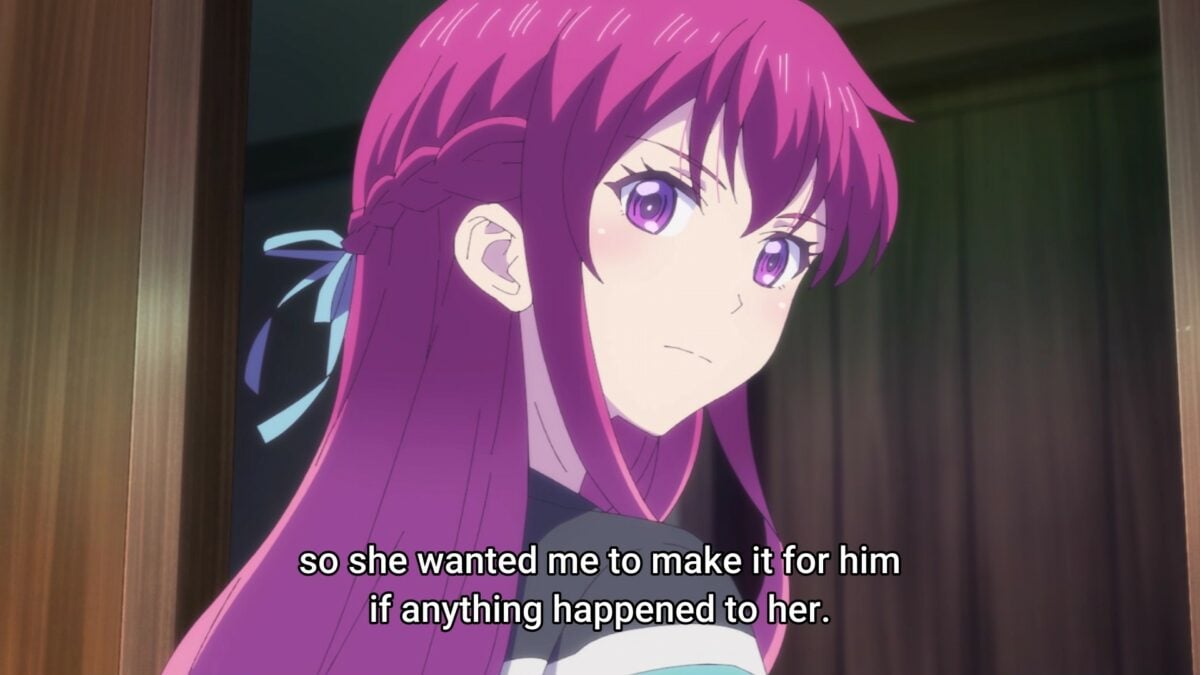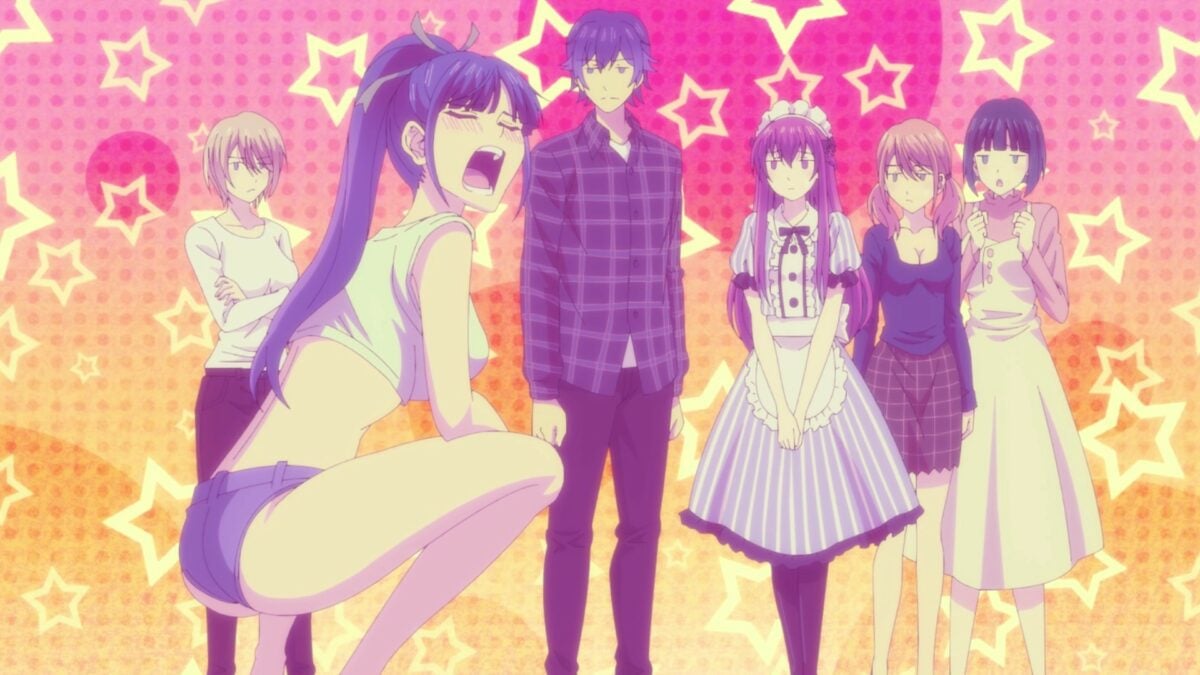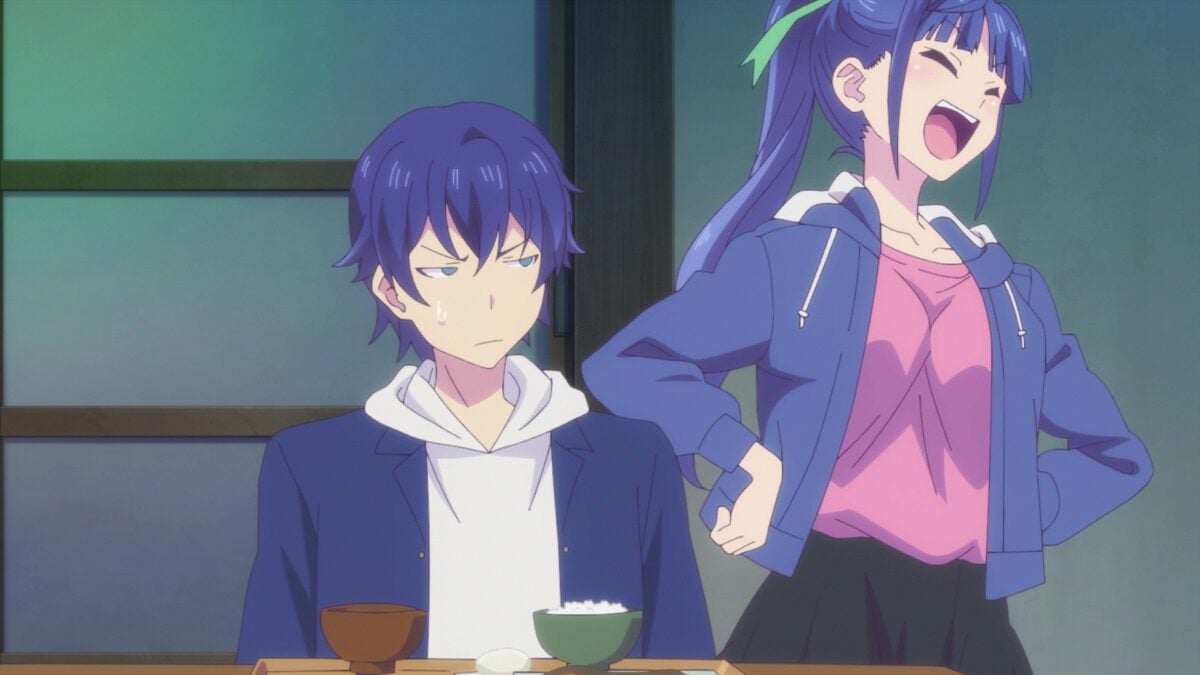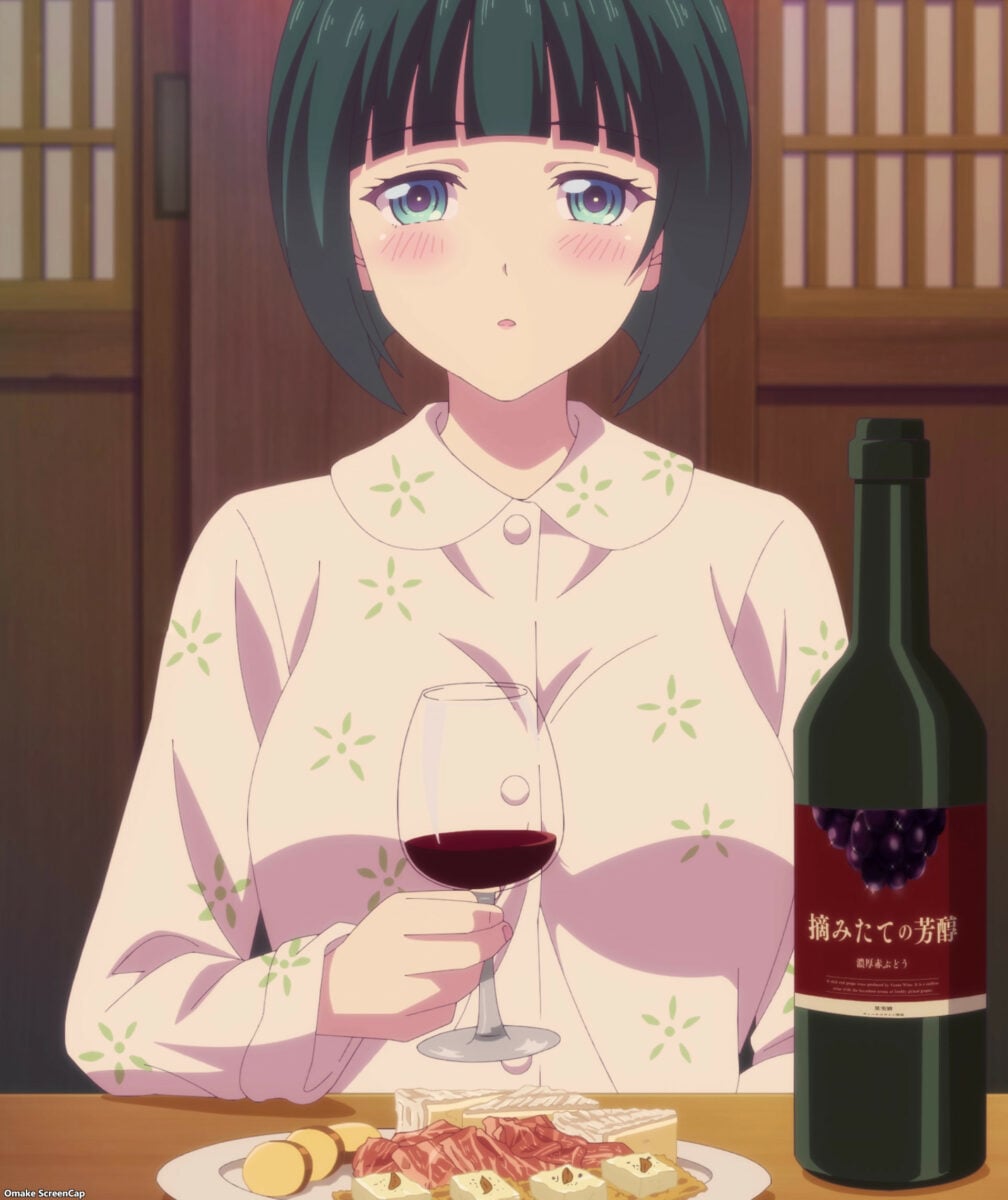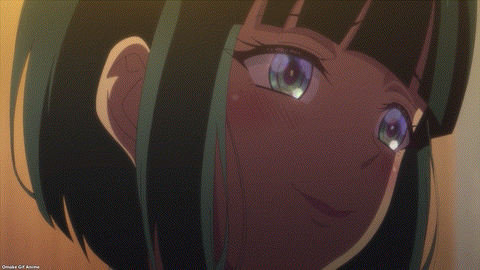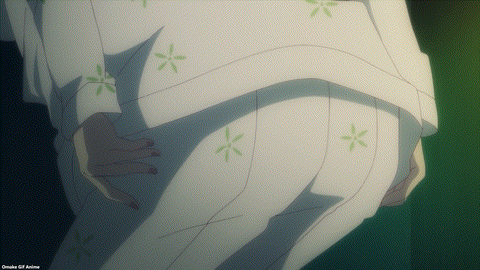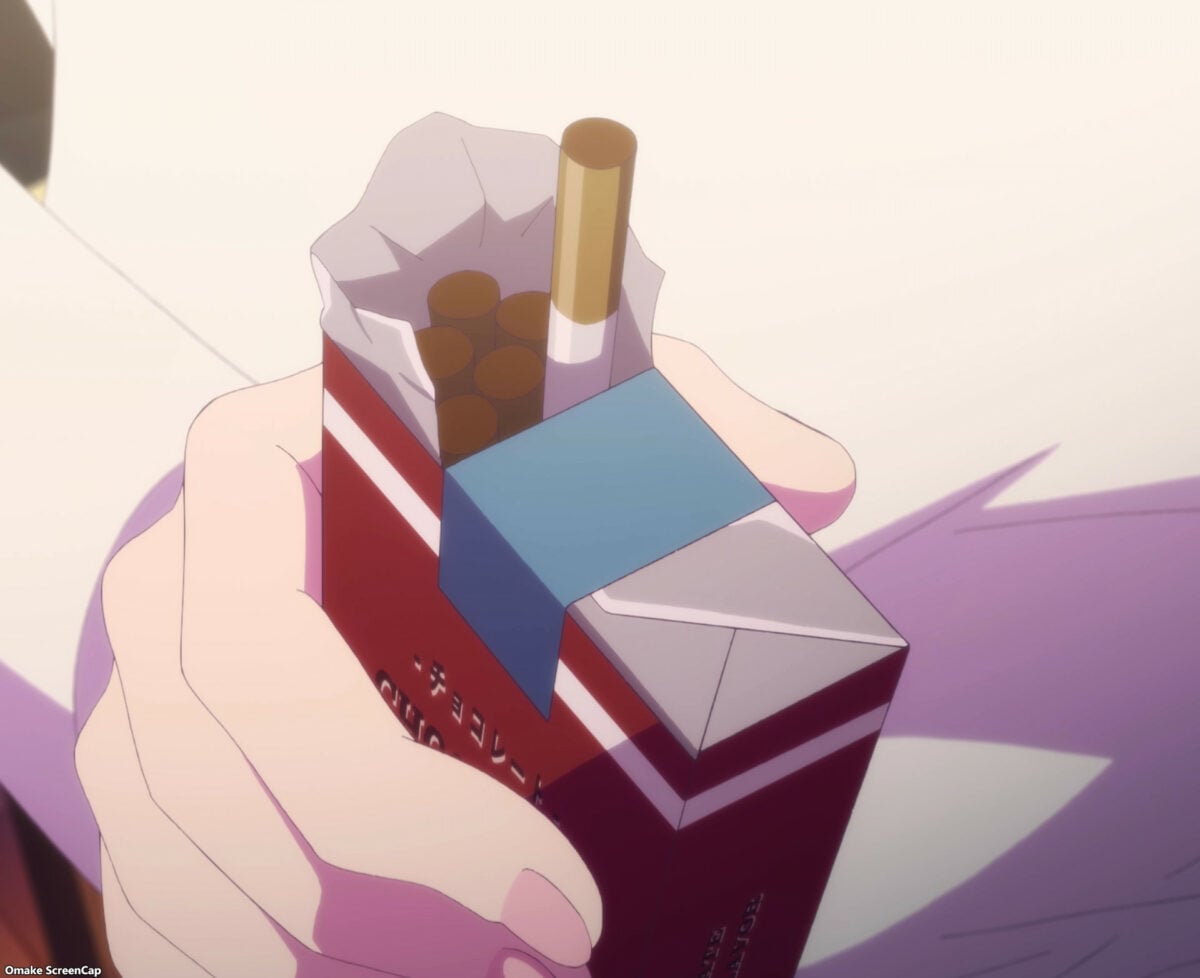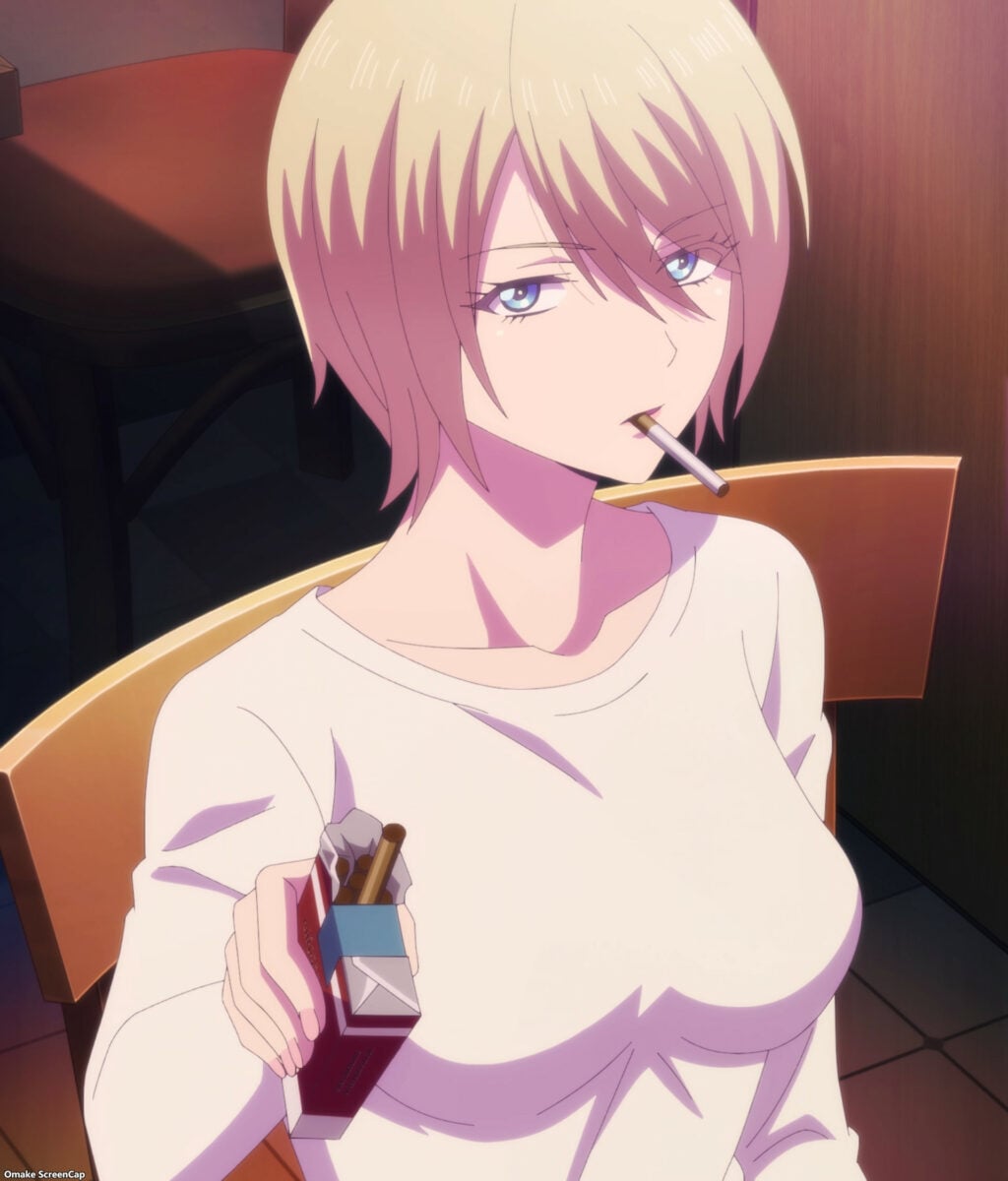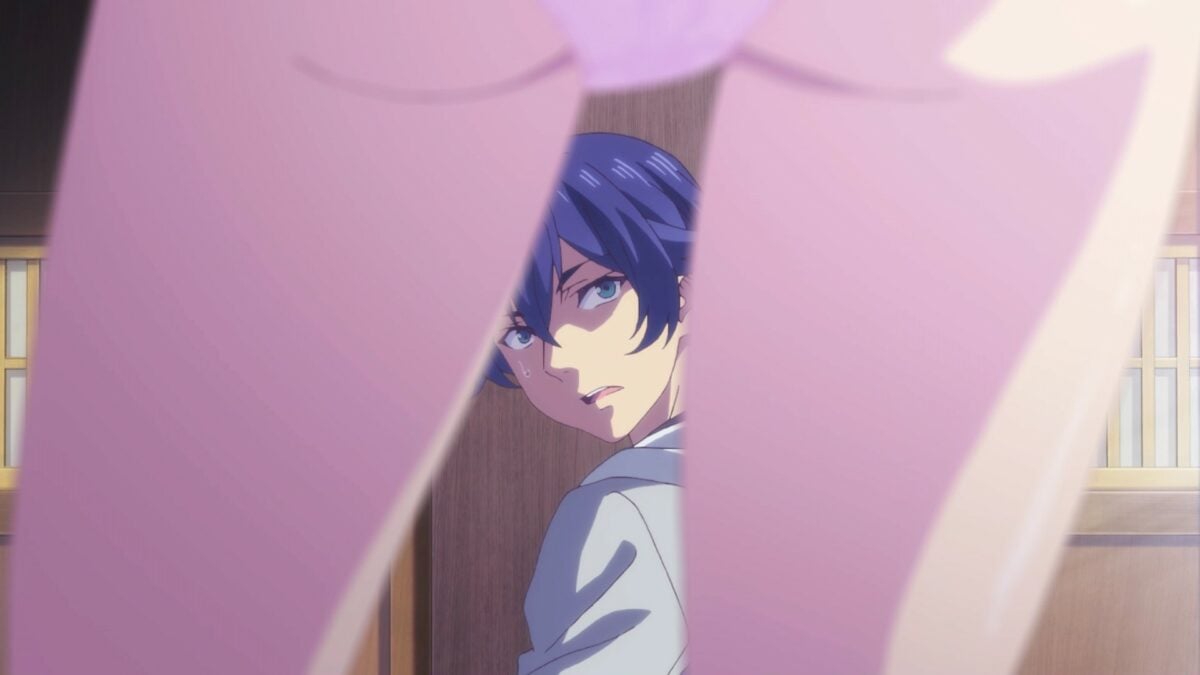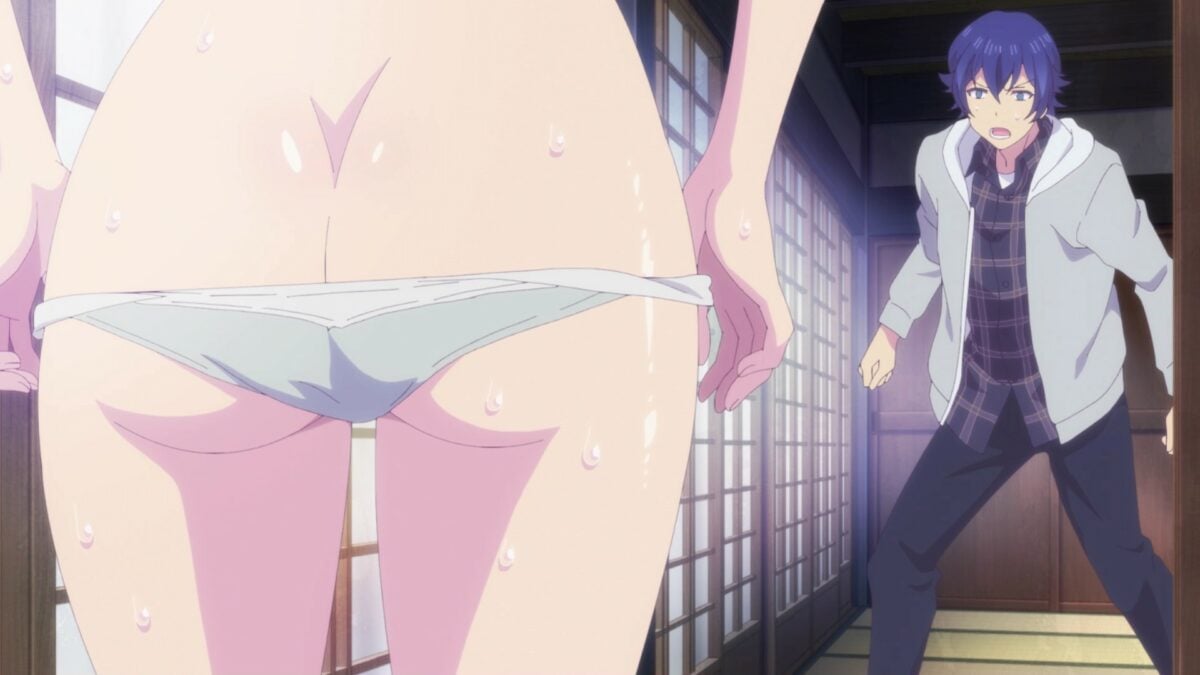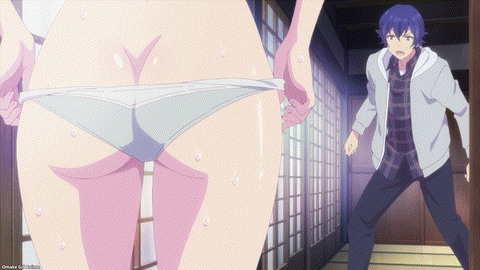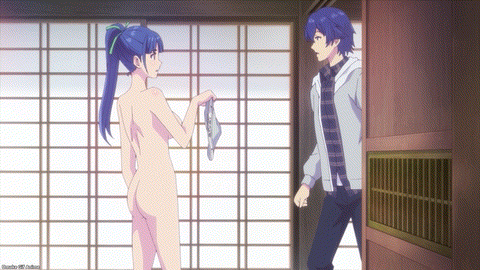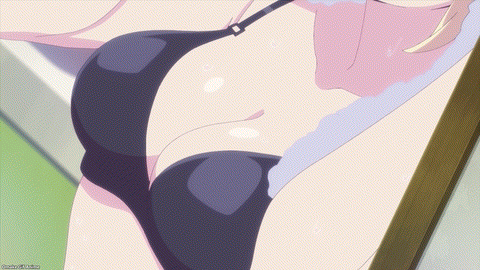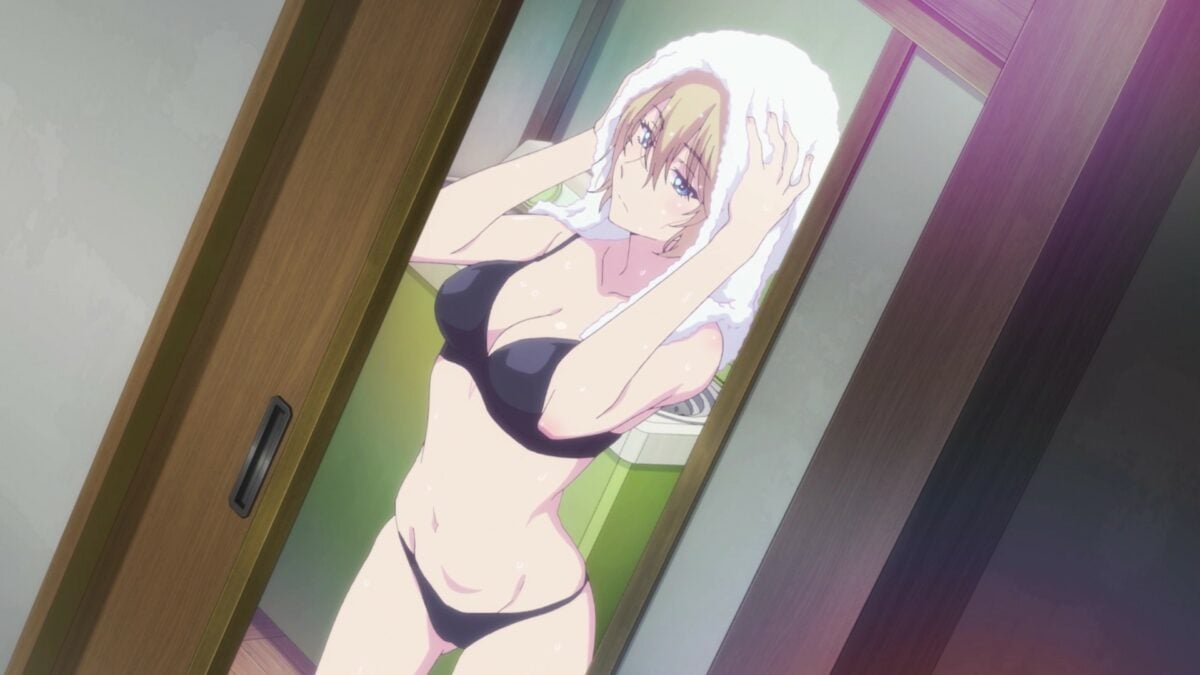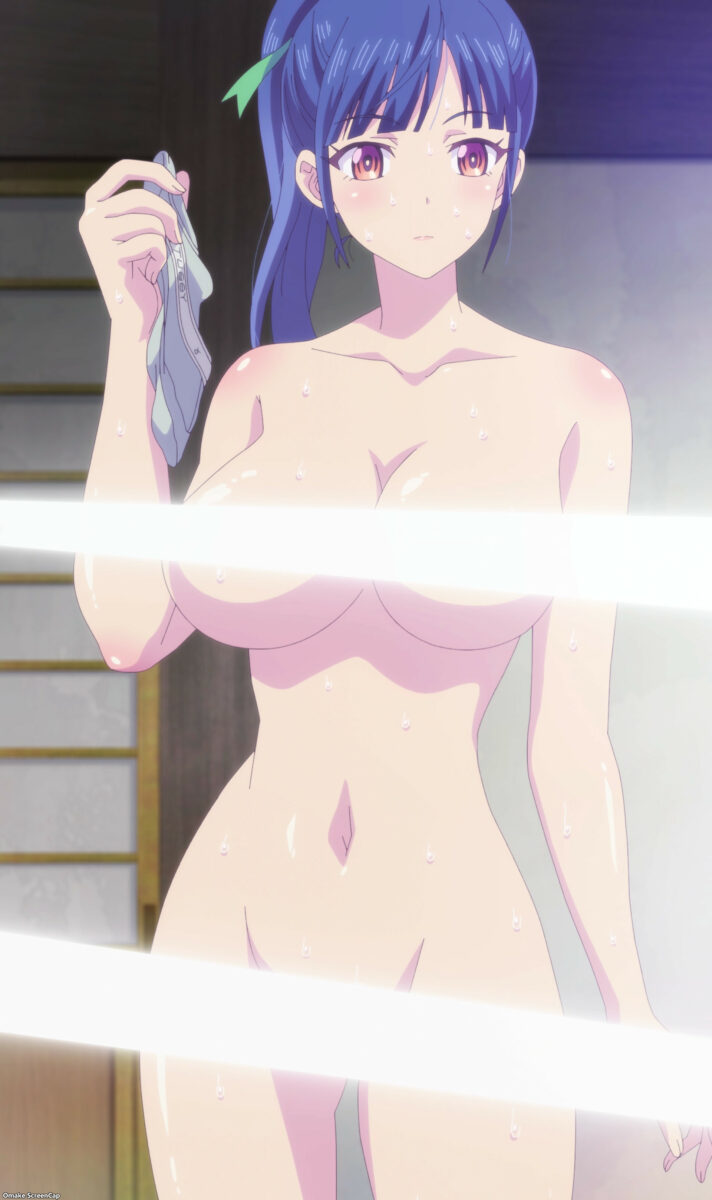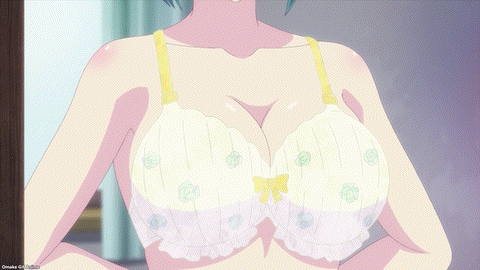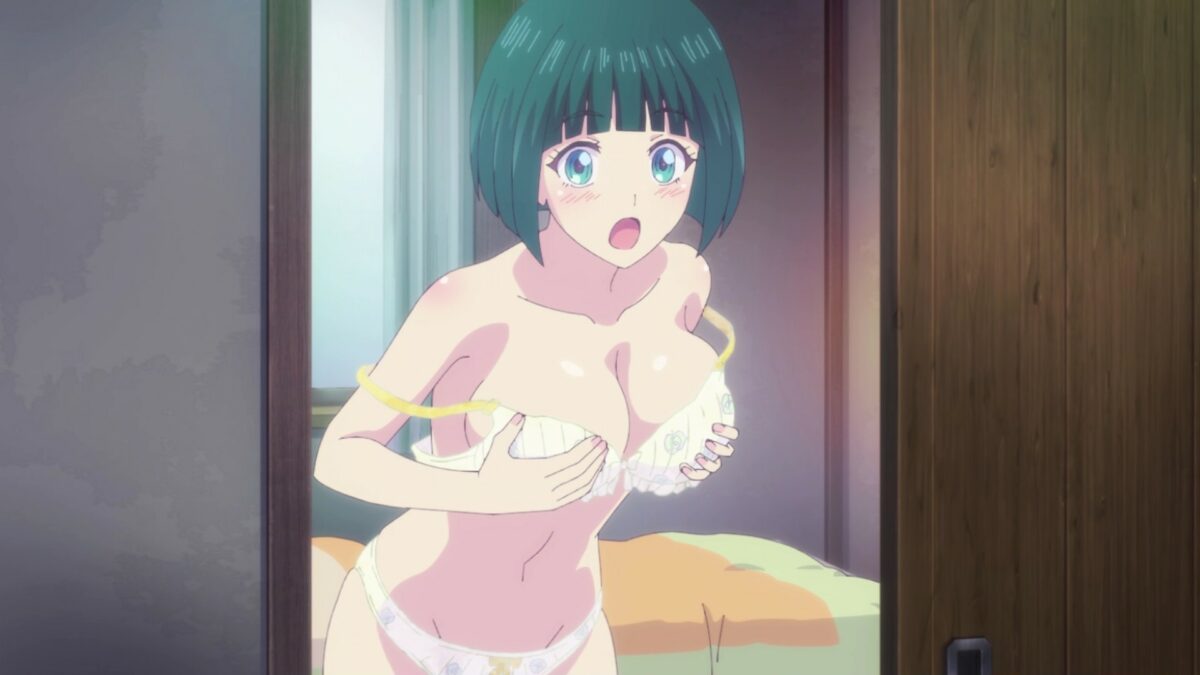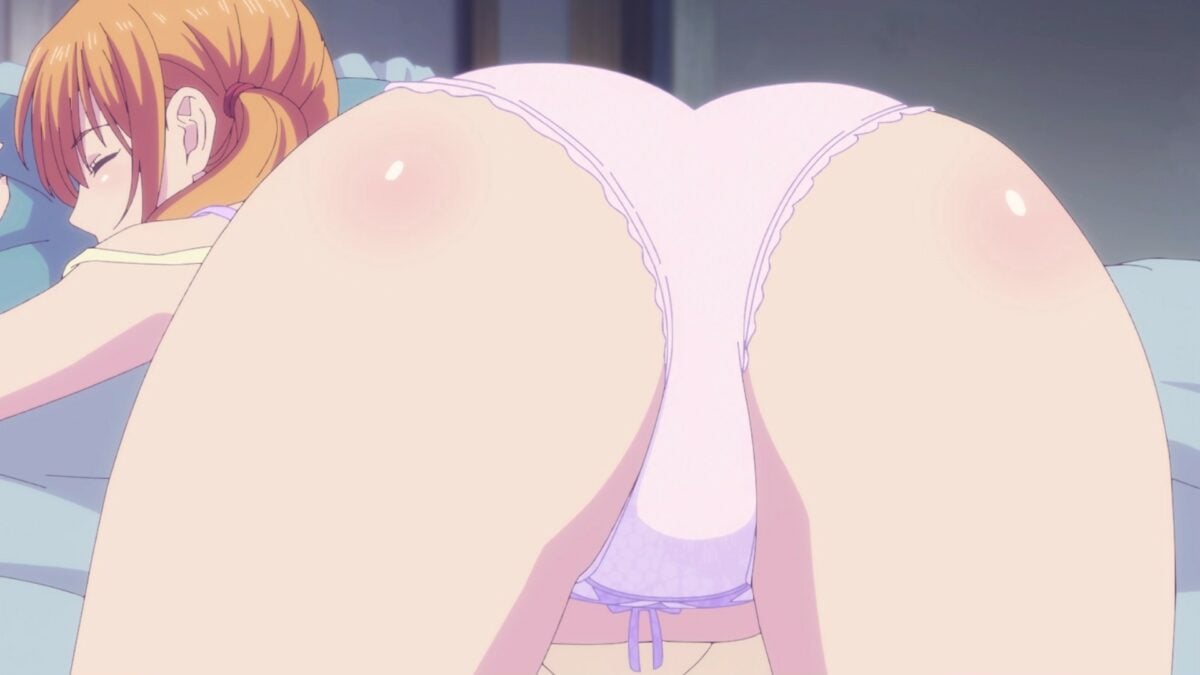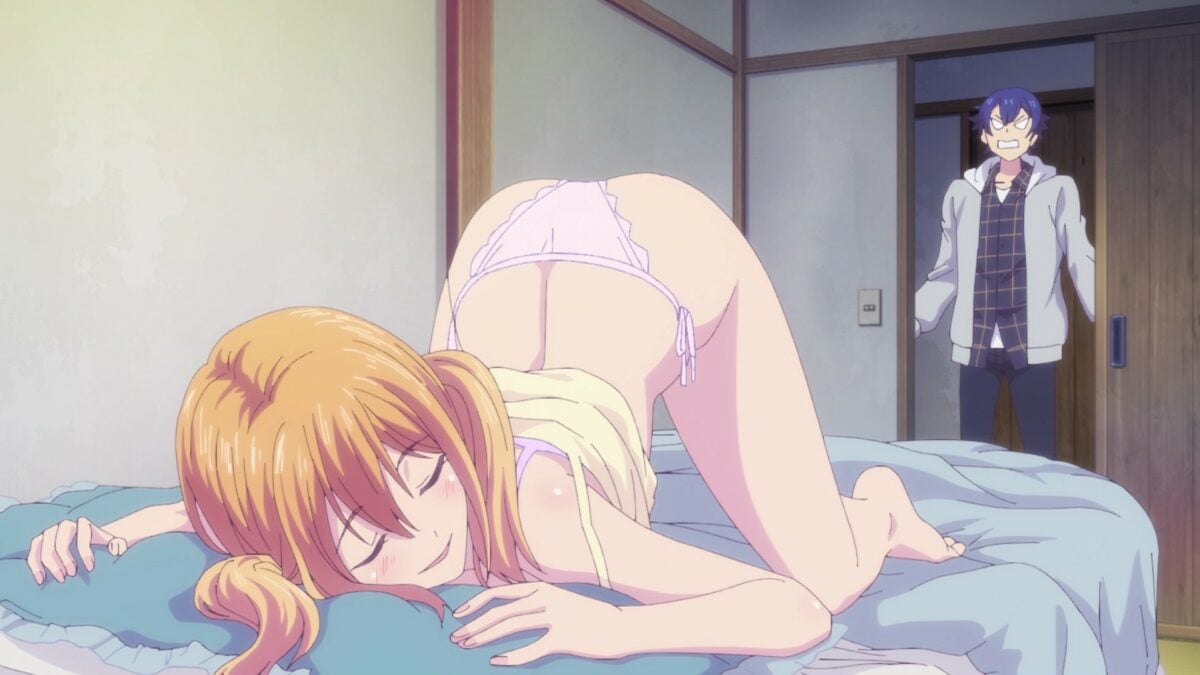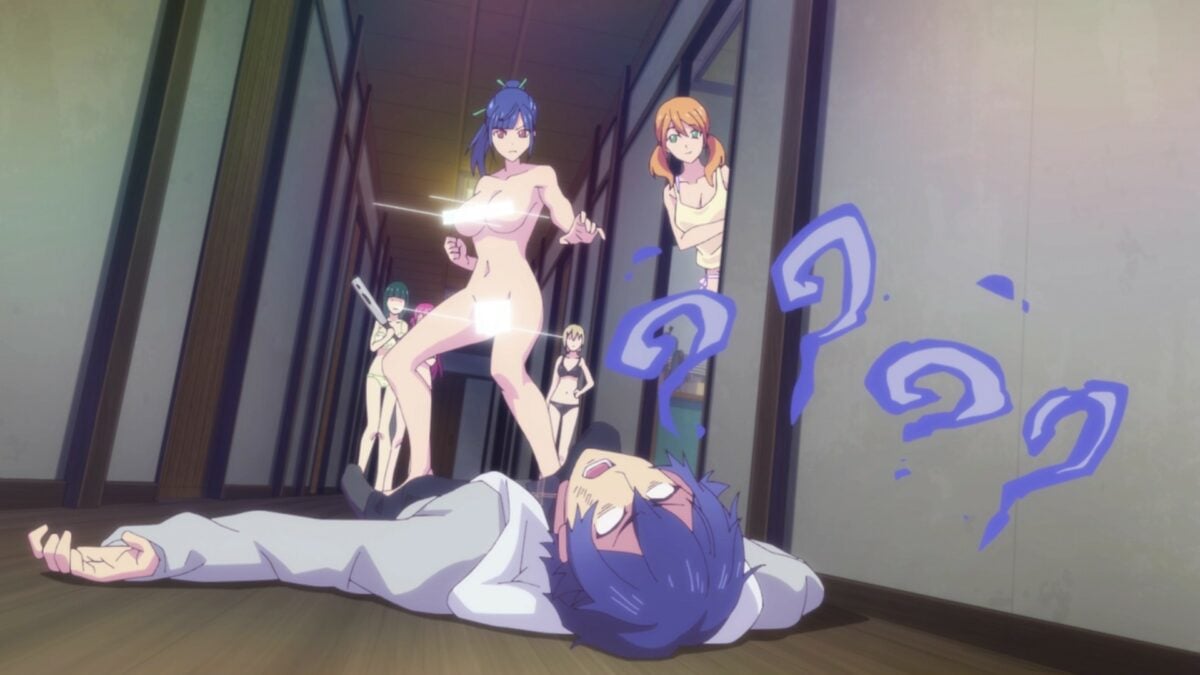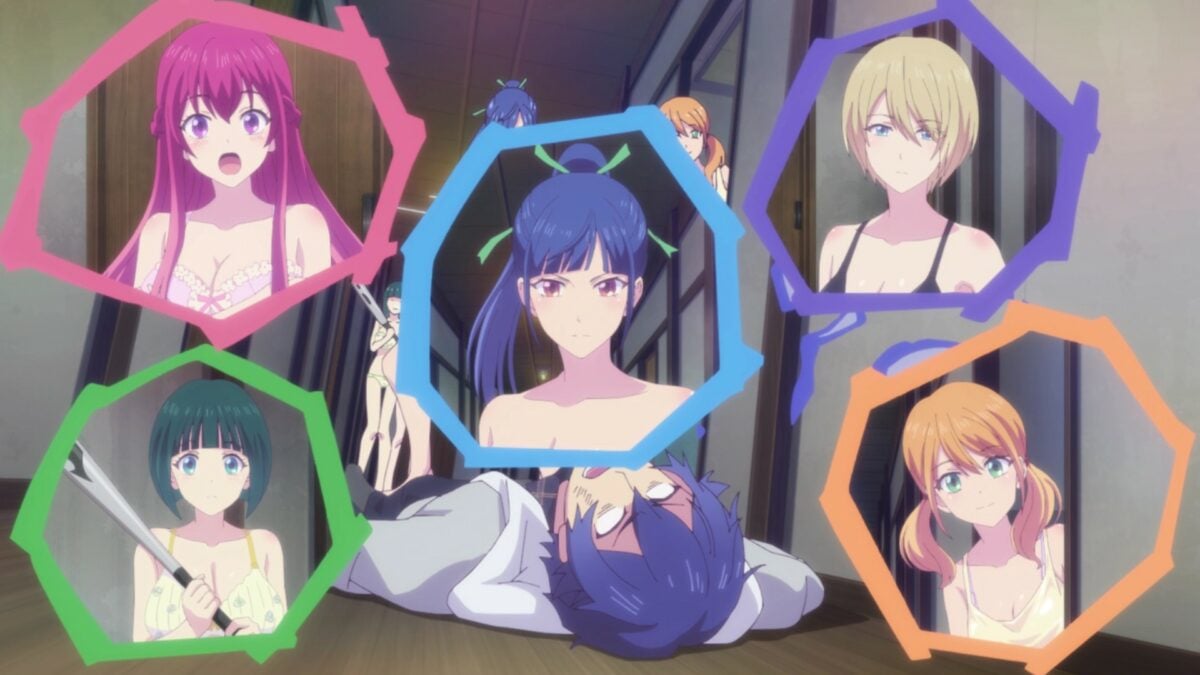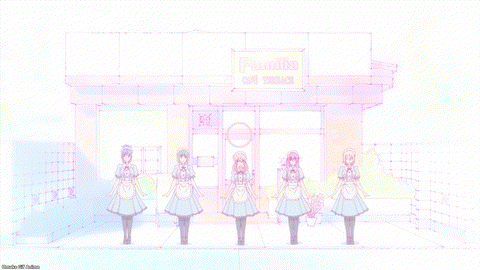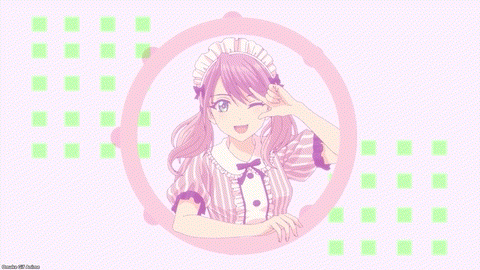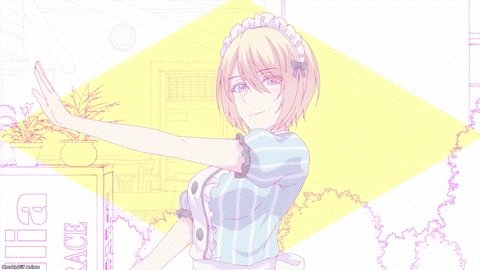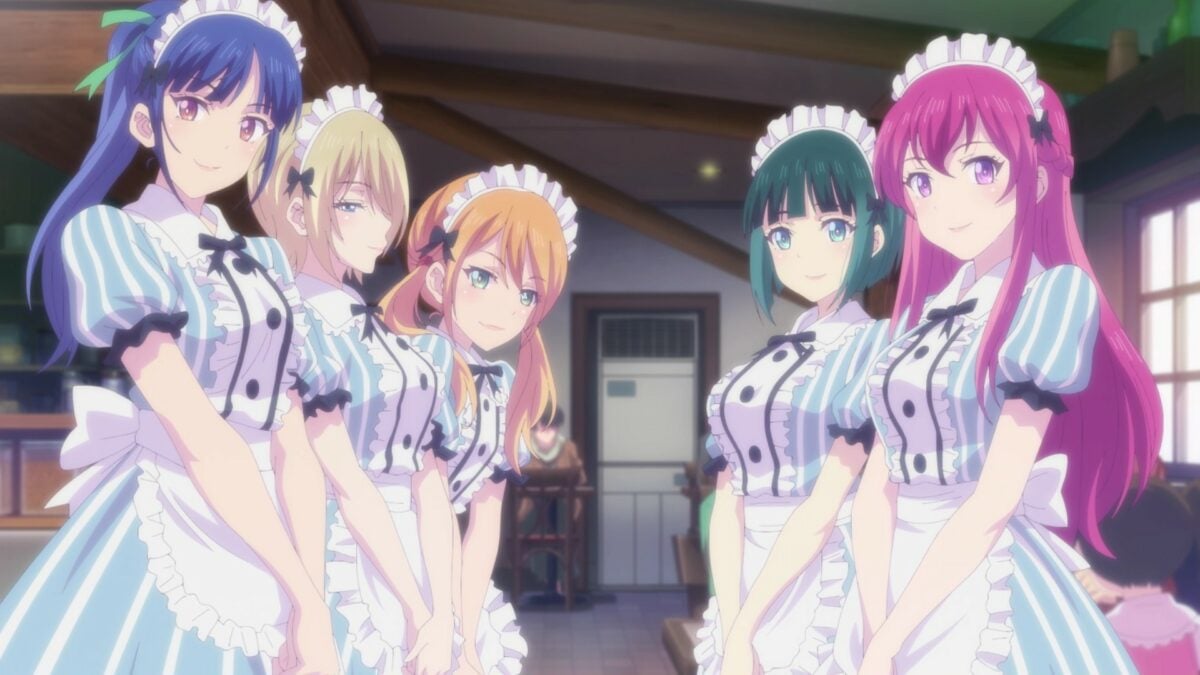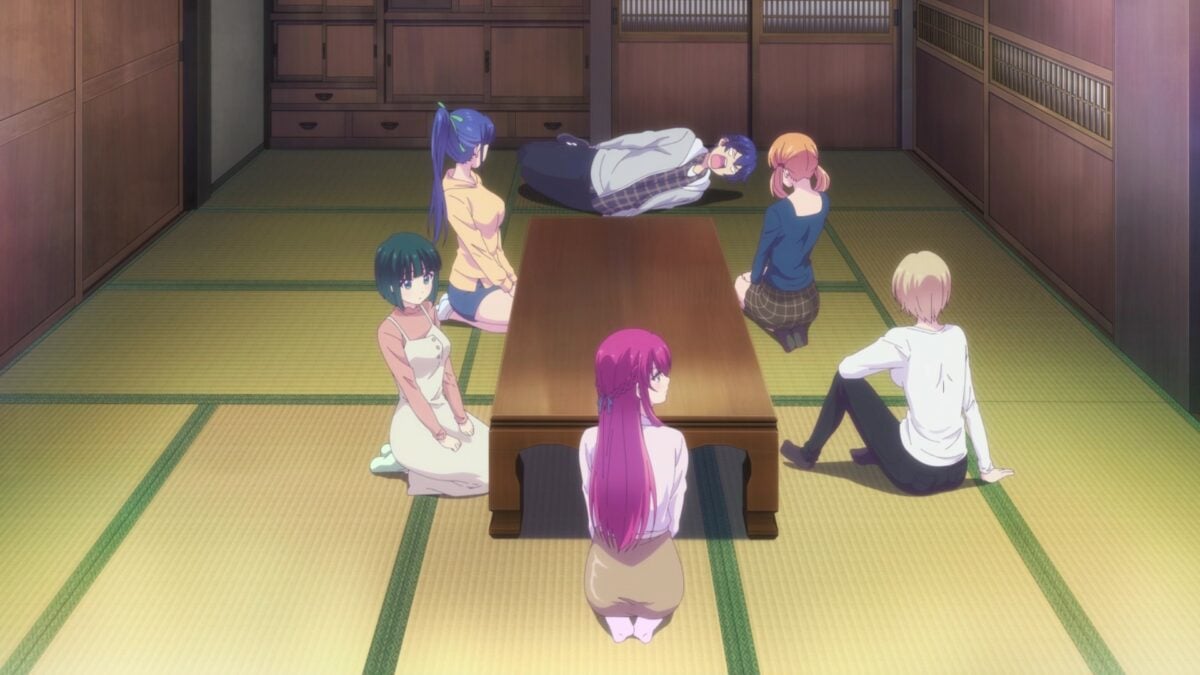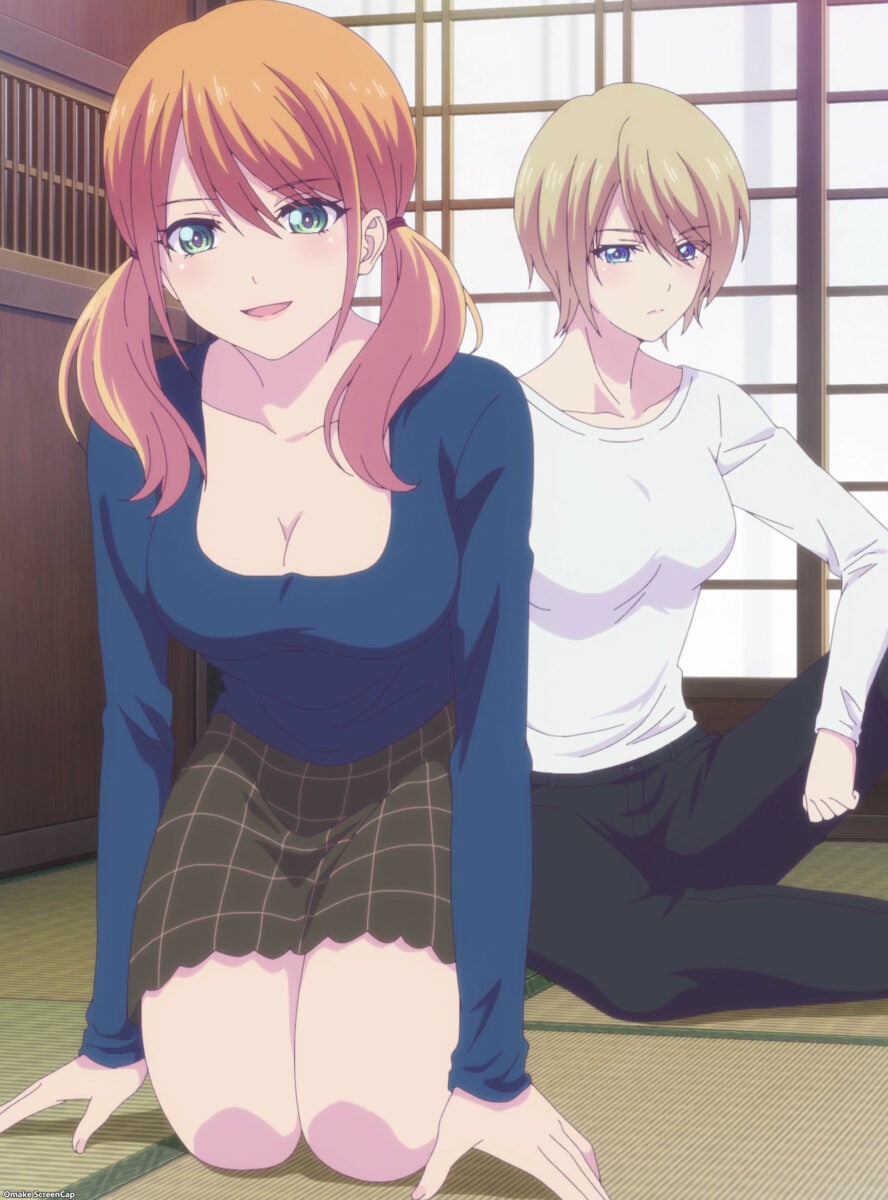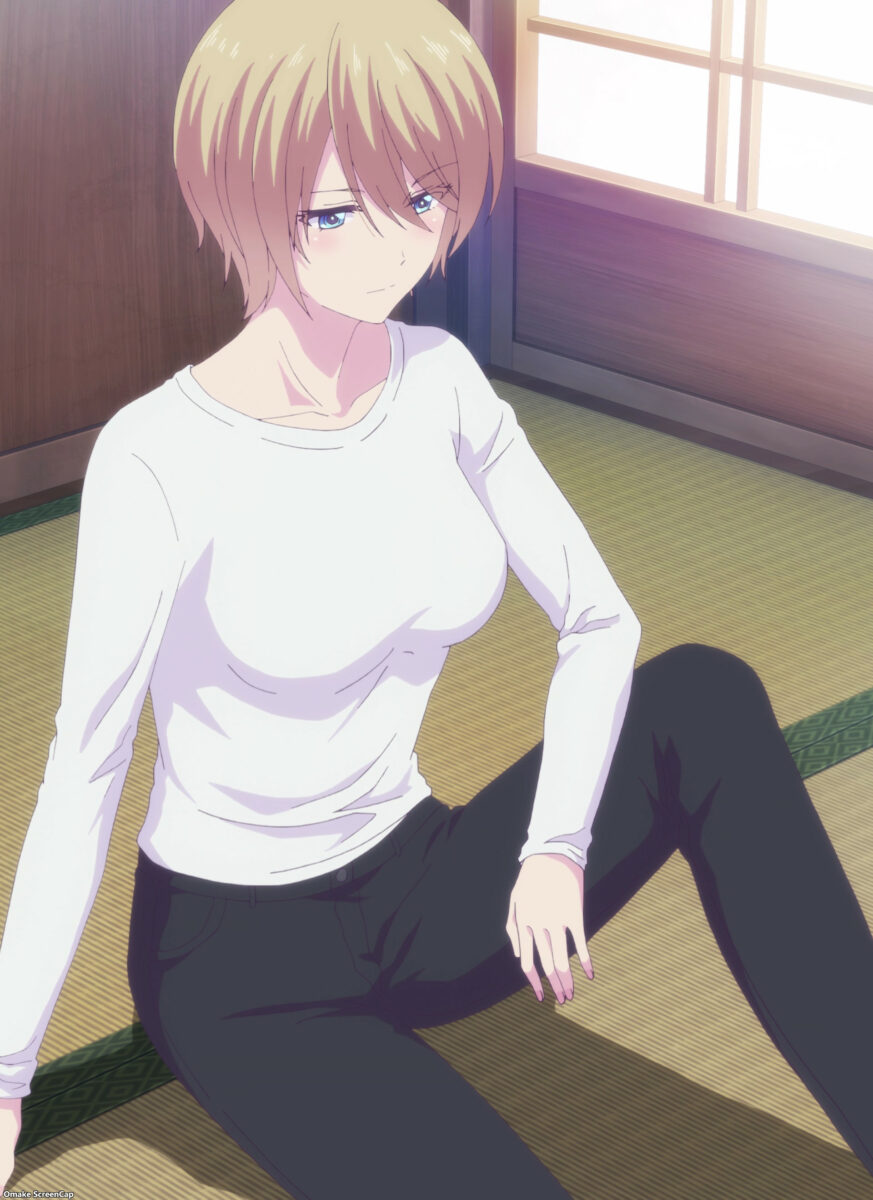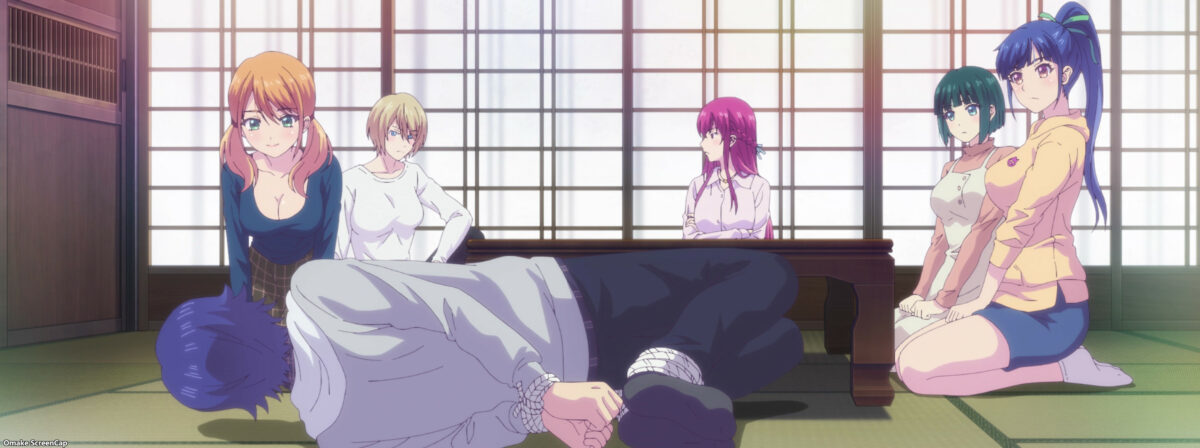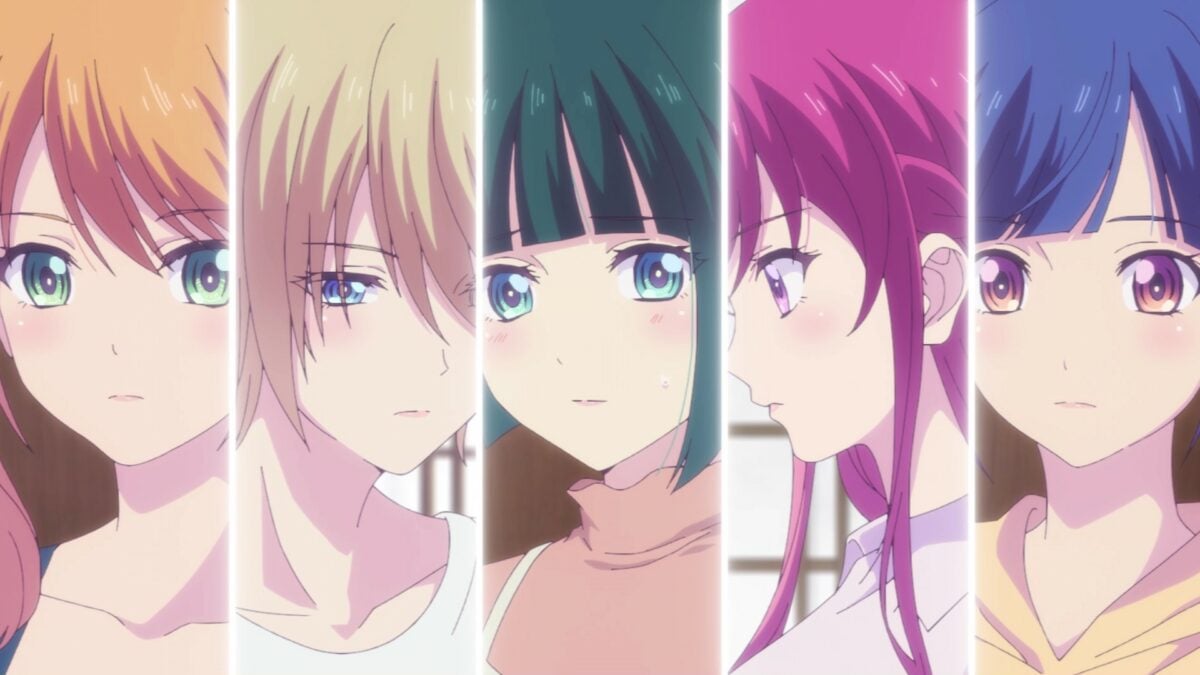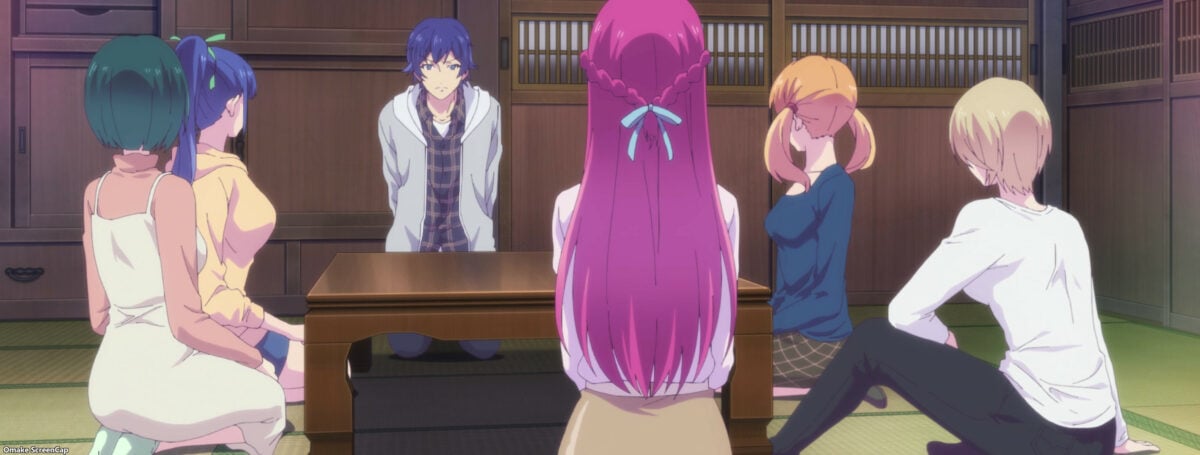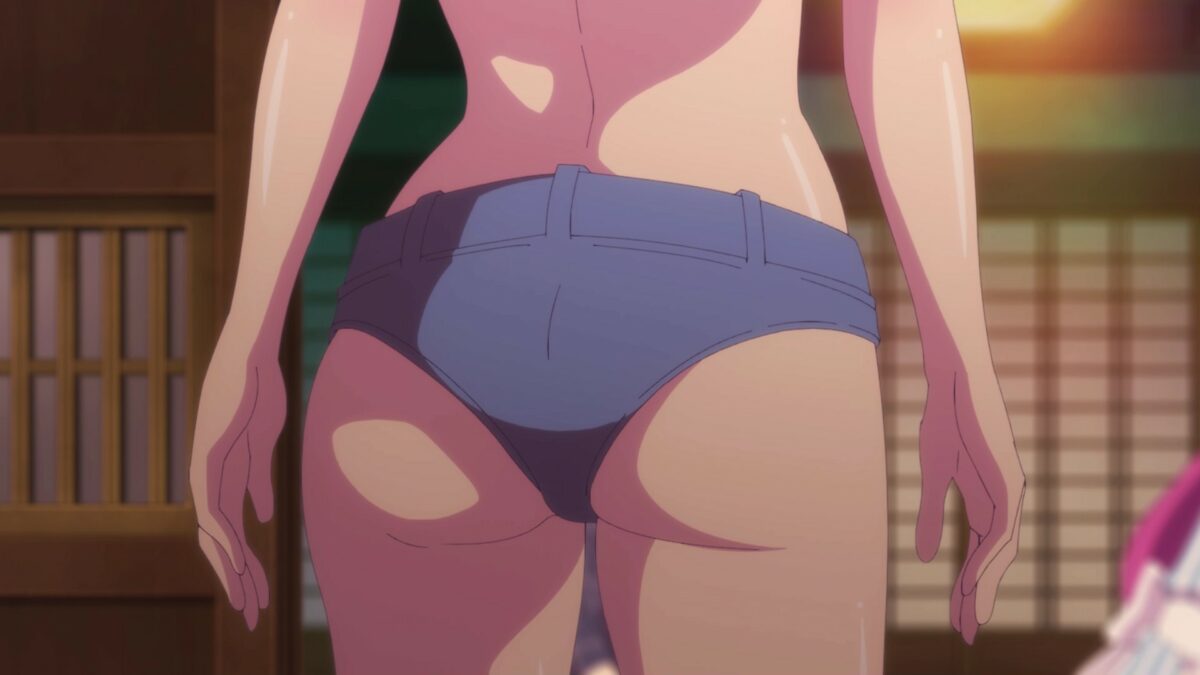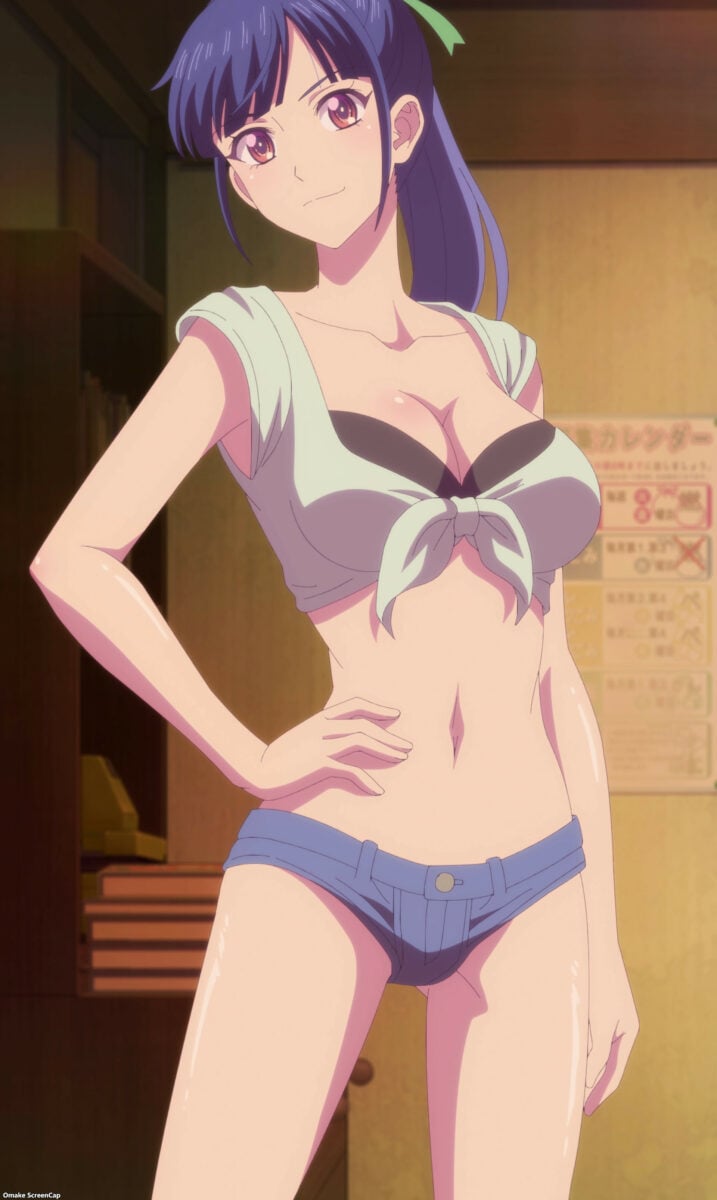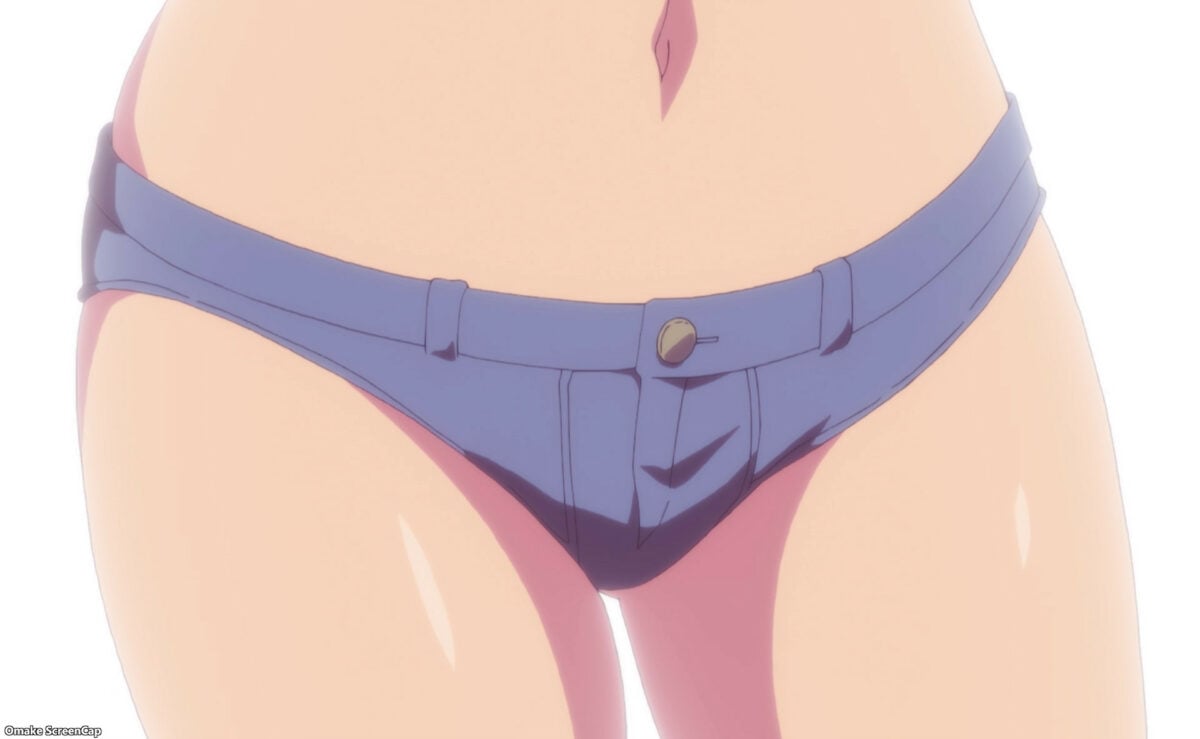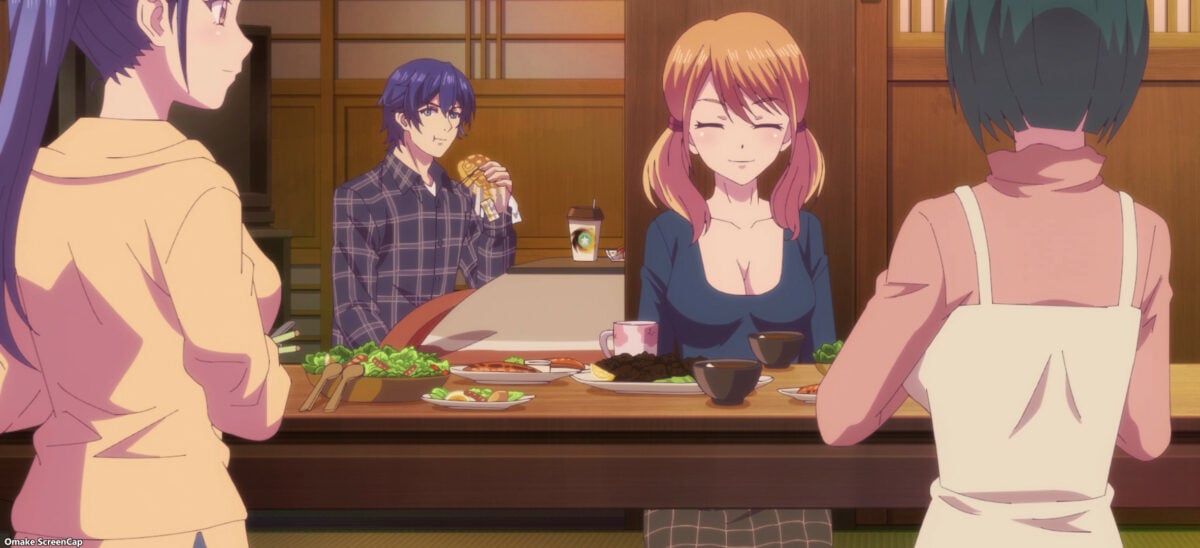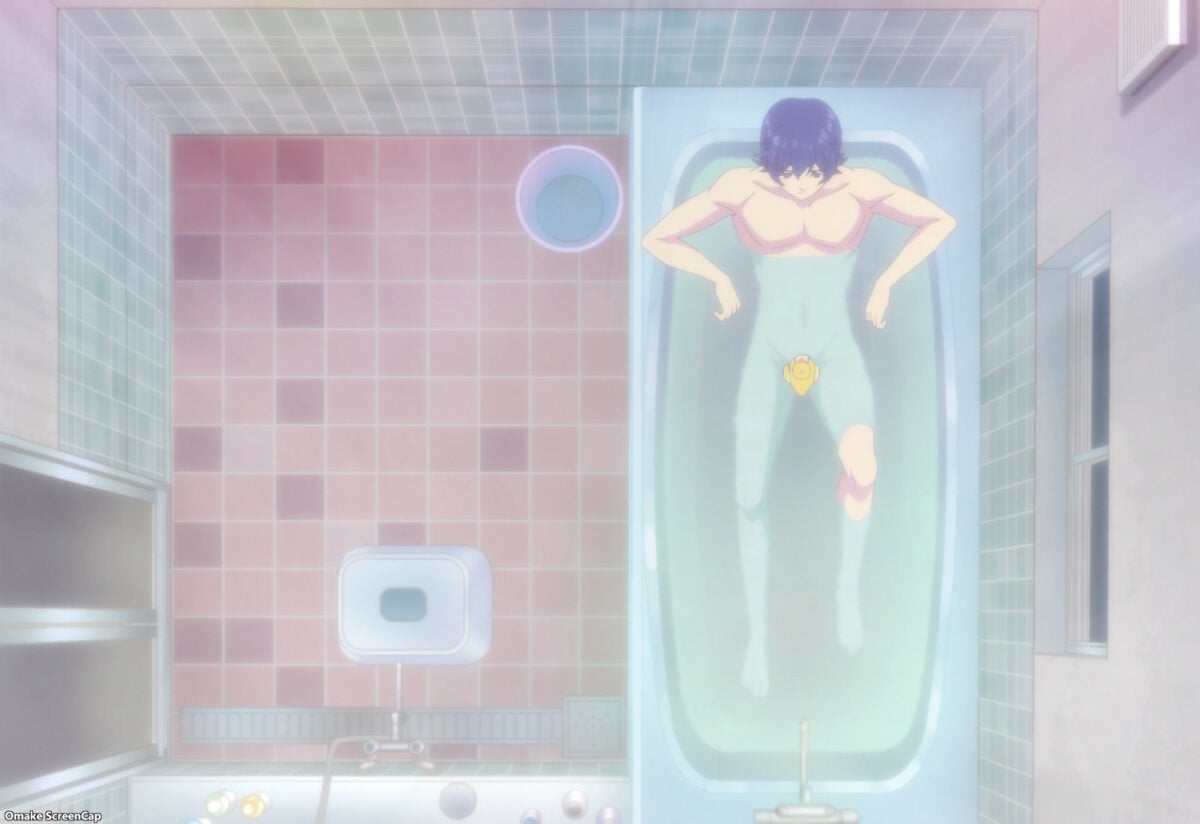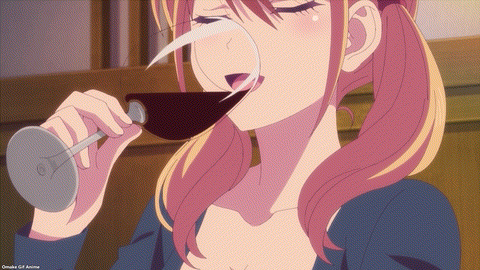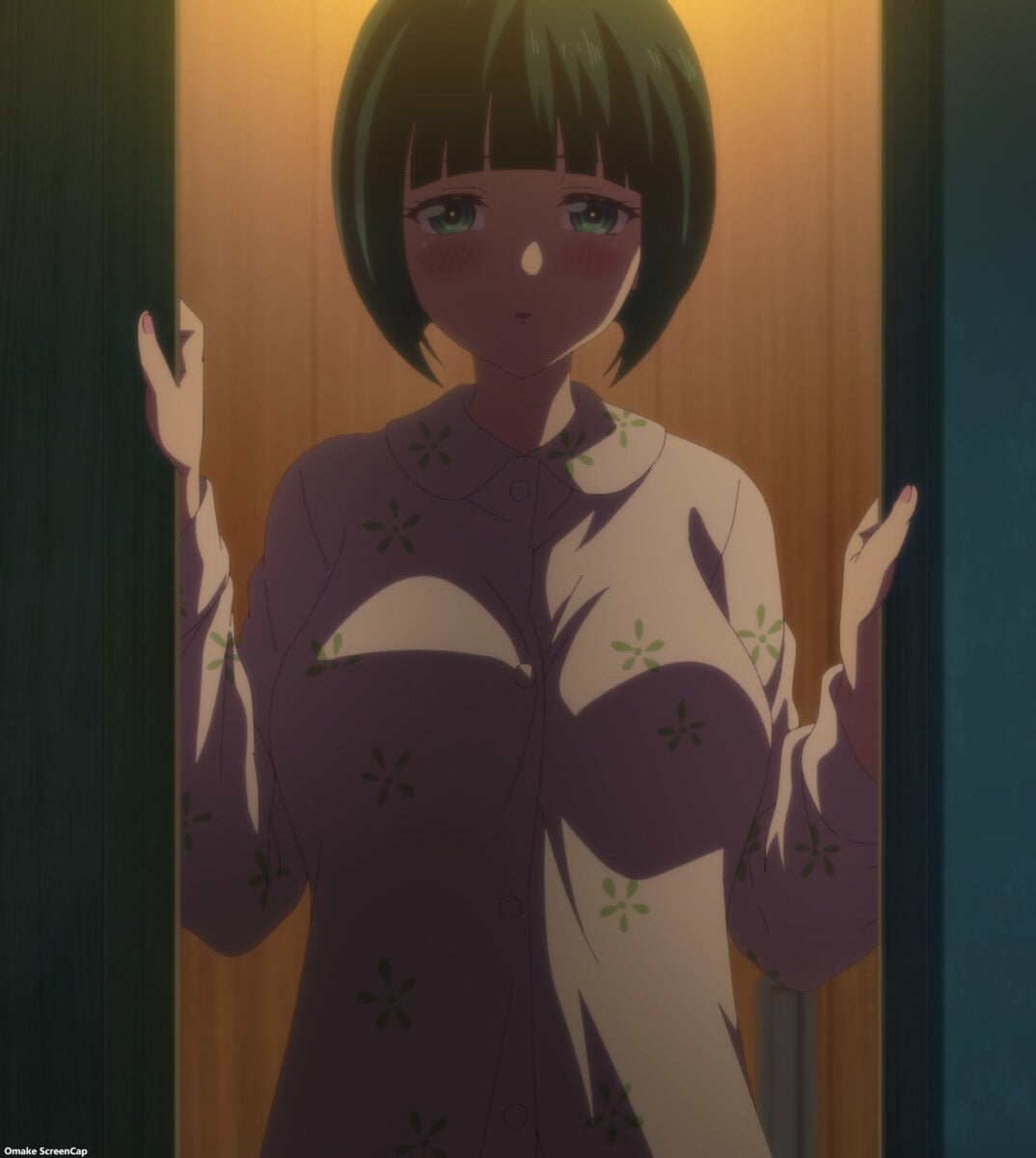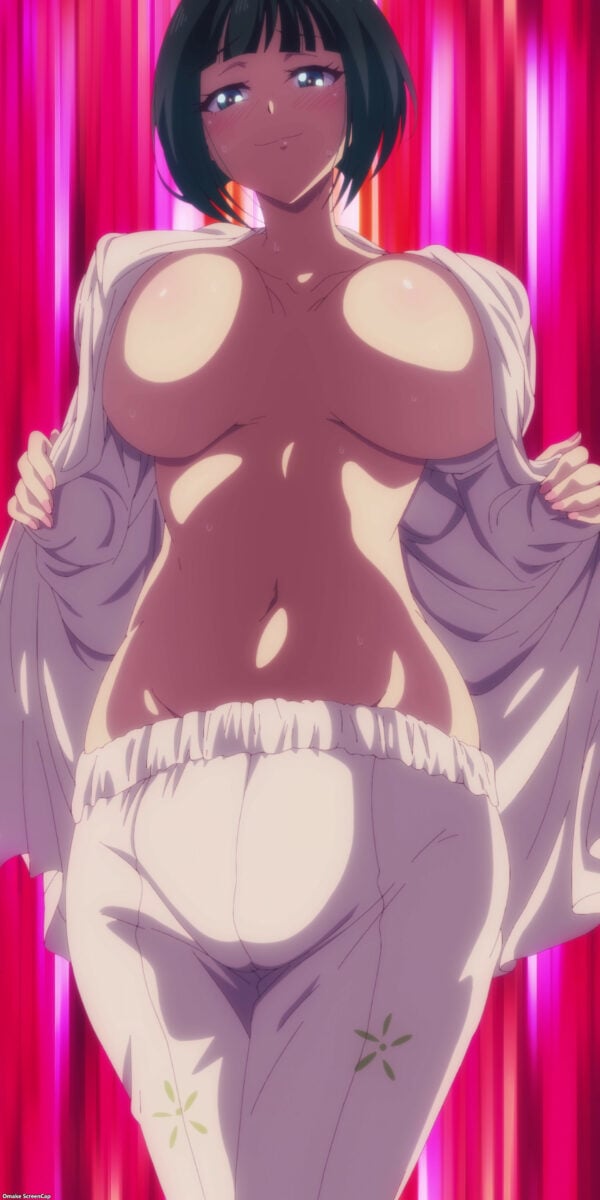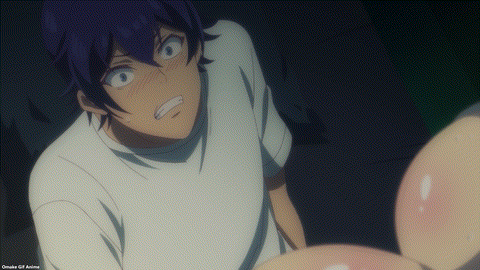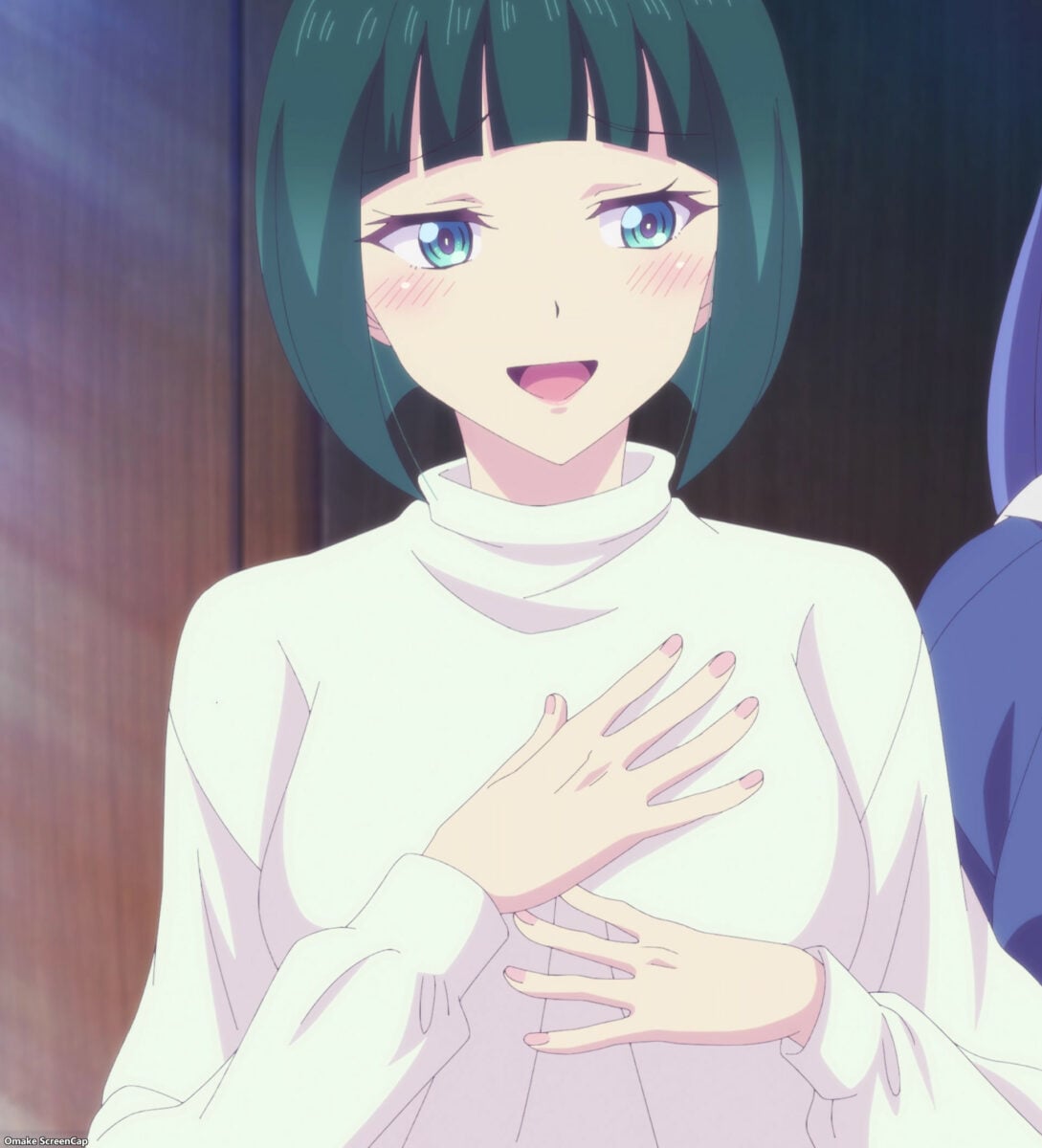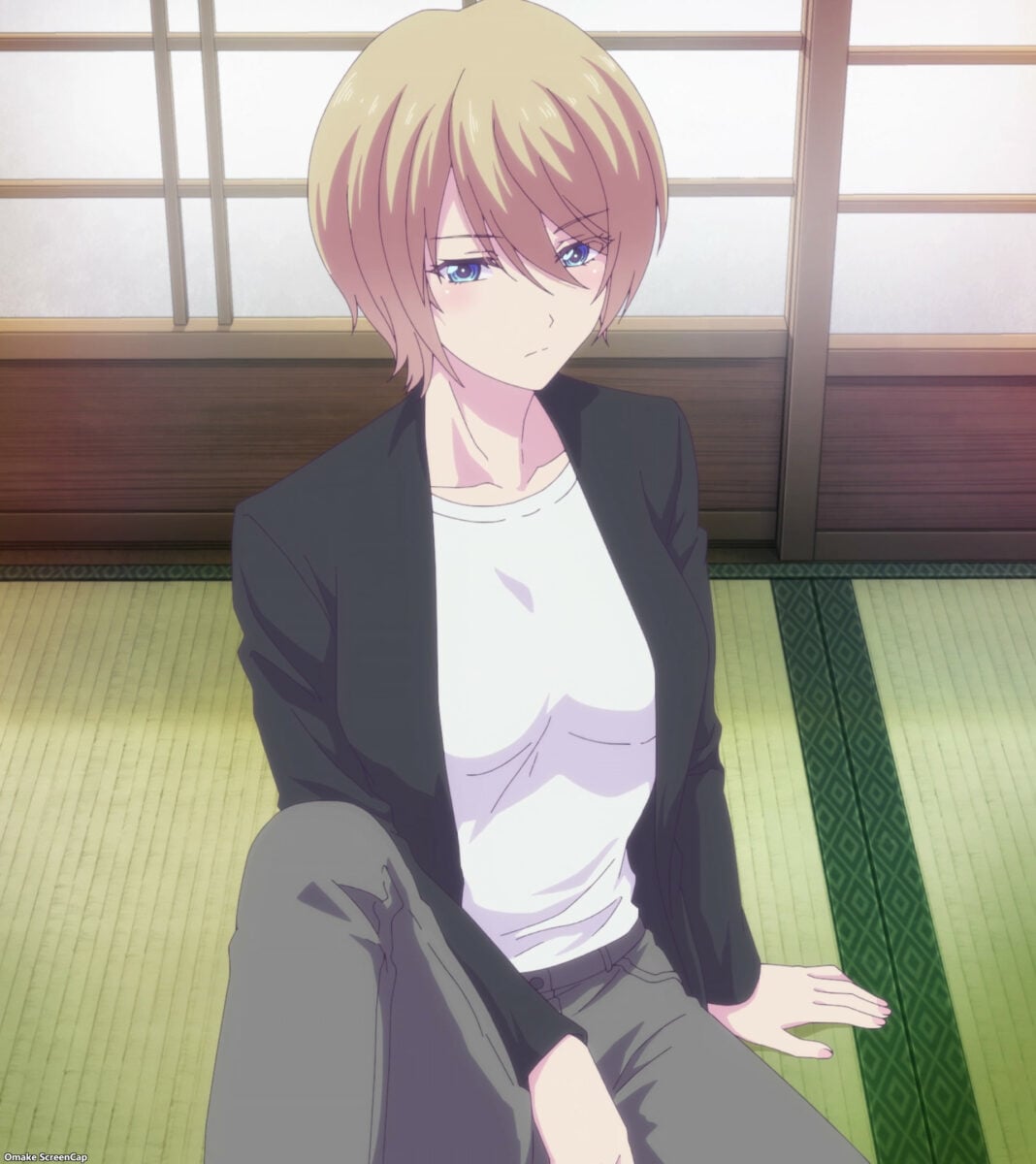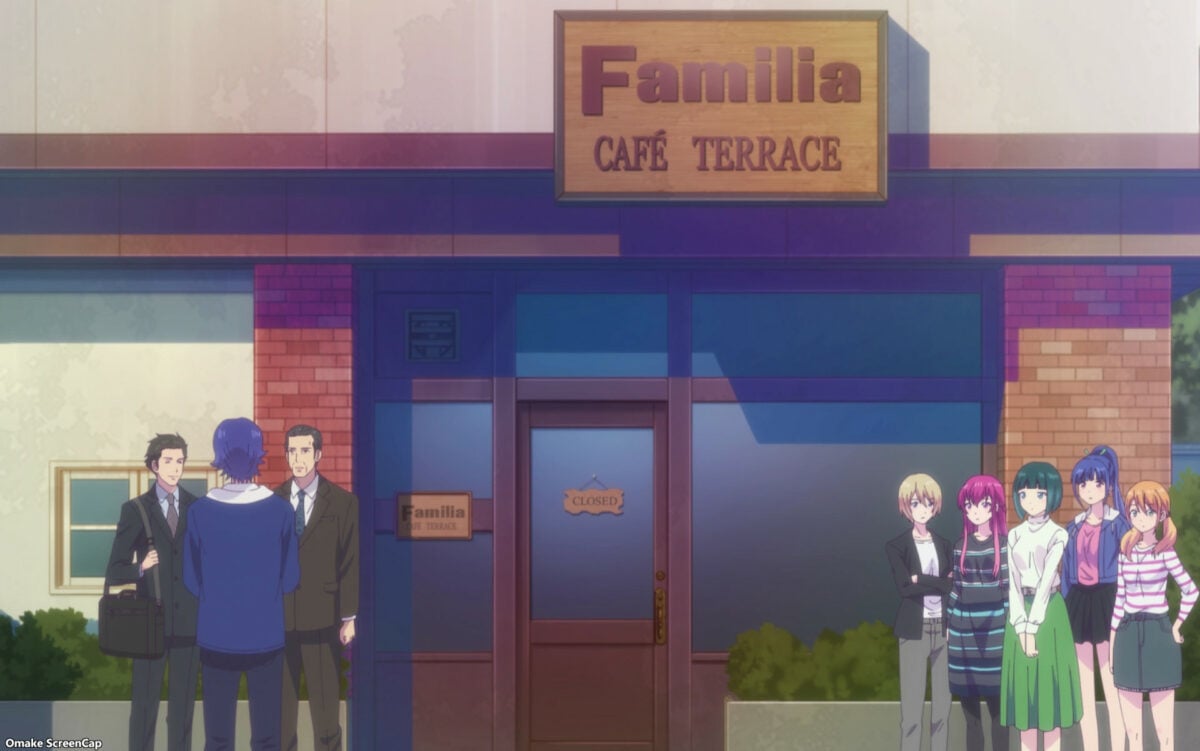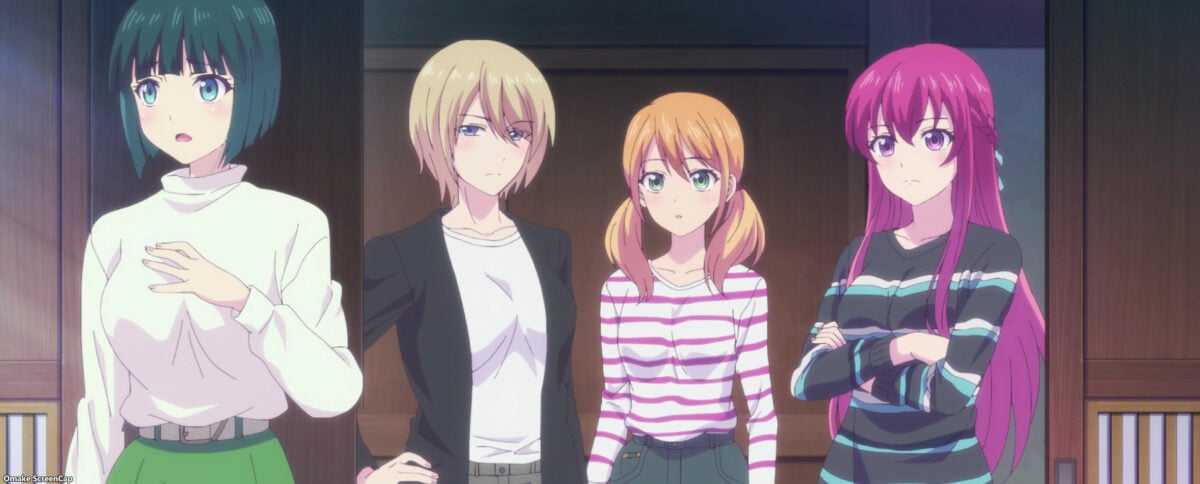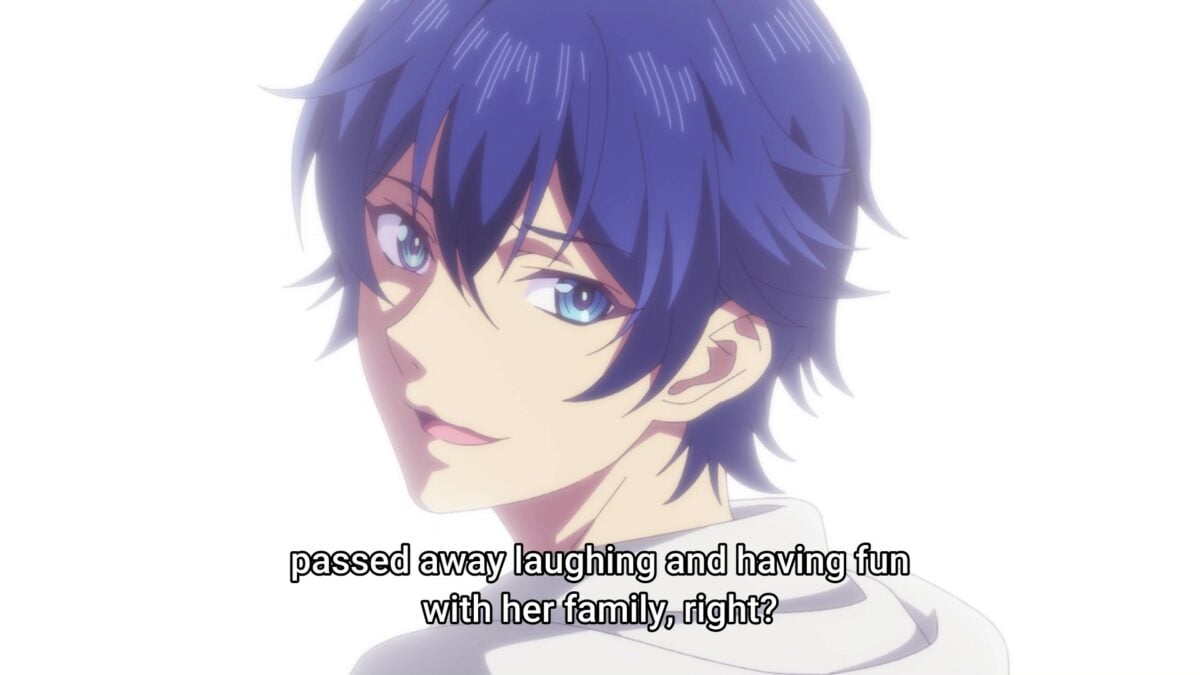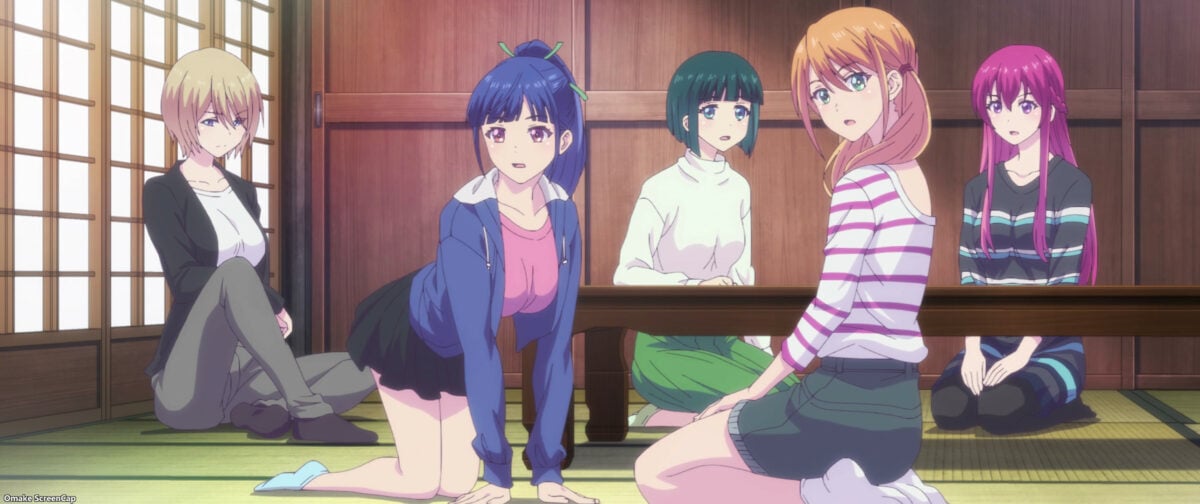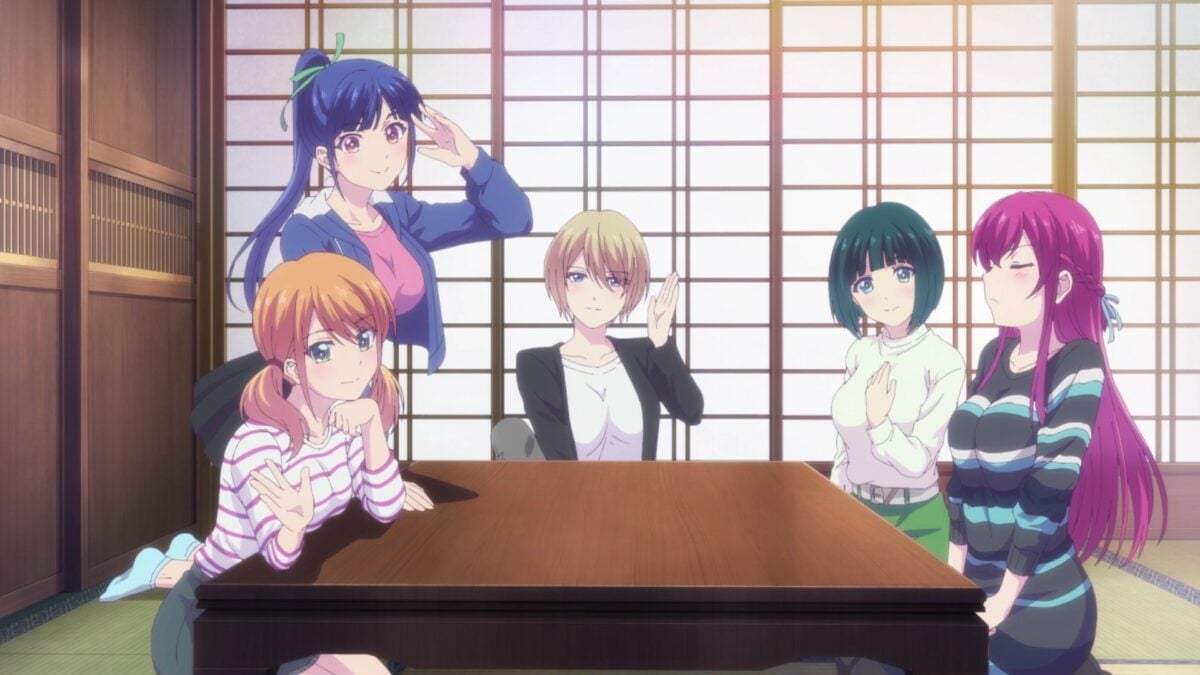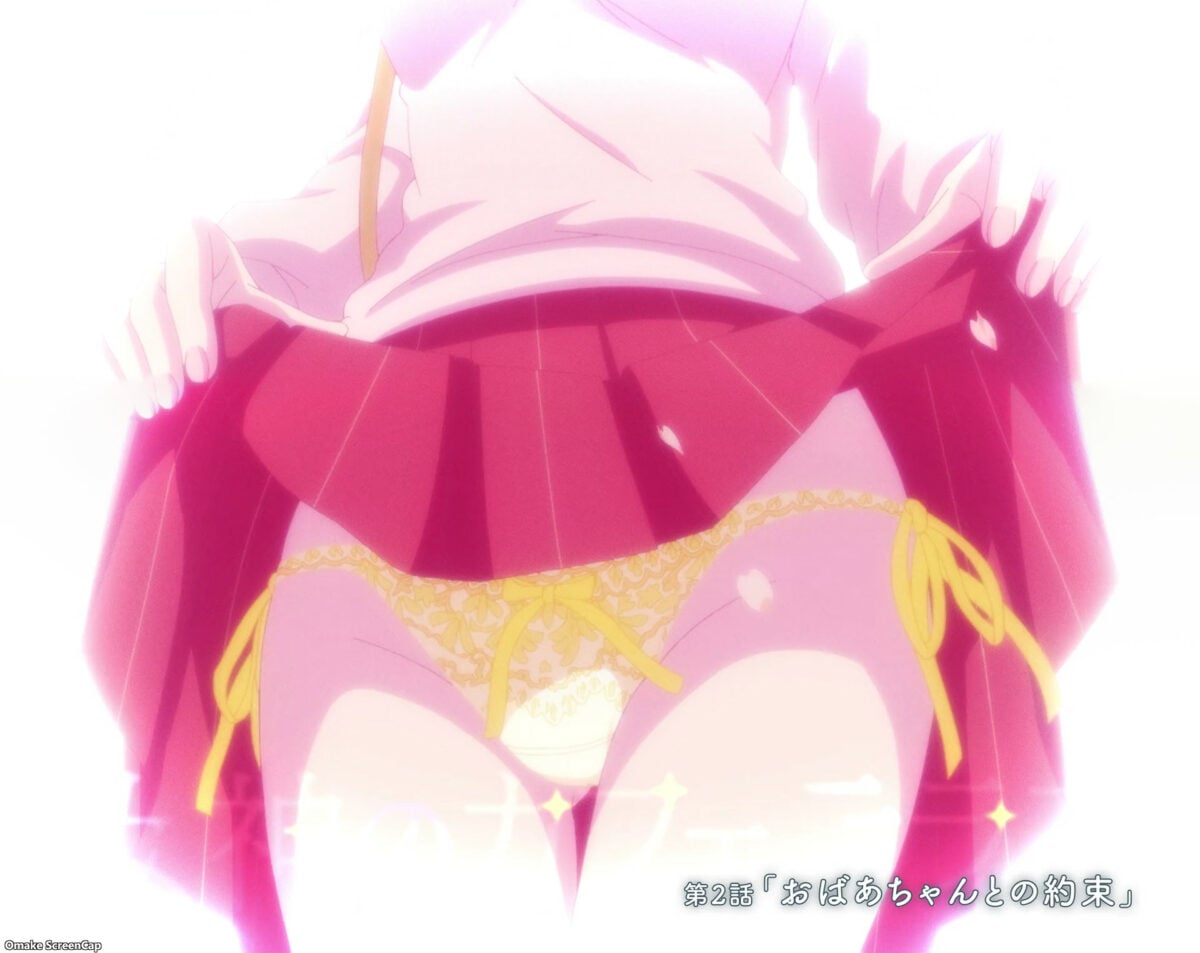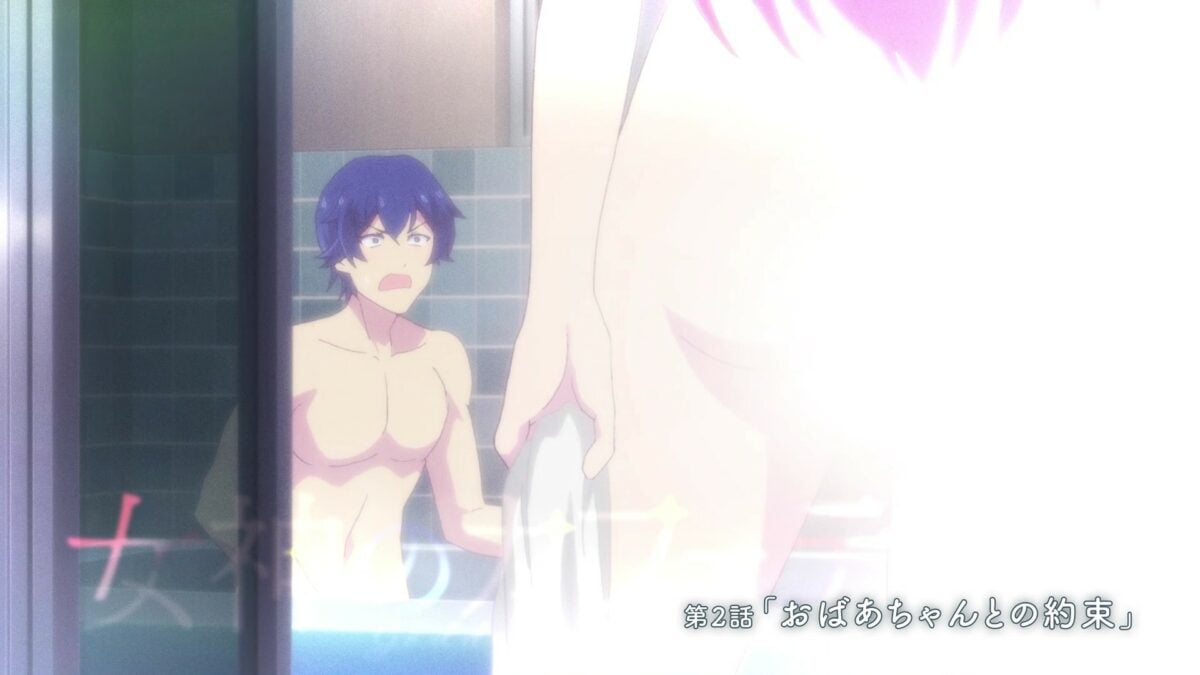Hayato Kasukabe inherits his grandmother’s beachside café and five beautiful live-in roommates.
Episode 1 — “Familia”
First Thoughts.
Drama Turns to Melodrama Between Pathos and Bathos
What drives the plot in an anime story? External circumstances or internal relationship dynamics? That difference separates shounen plots (for teenagers) from seinen storylines (for young adult categories). Goddess Café Terrace (女神のカフェテラス, Megami no Café Terrace, The Café Terrace and its Goddesses) is a harem plot told through the seinen filter from Kouji Seo. In his earlier works, Suzuka and Fuuka, Seo often showed his titular characters react dramatically to personal crises. Relationships changed in those moments alongside sudden plot developments. But when does the dramatic become overly dramatic?

Suspension of disbelief is easier in the shounen genre because the setting is already fantasy, sci-fi, or physical fighting through martial arts or club sports. Seinen stories have a disadvantage. What happens when you can’t believe a character’s motivations? Did dramatic become melodramatic? Did pathos turn to bathos? An audience can drop an anime if the writing tugs too hard on heartstrings, snapping them.
Merriam-Webster defines melodrama as “a work (such as a movie or play) characterized by extravagant theatricality and by the predominance of plot and physical action over characterization.” For a story driven by relationships, we watch out for theatrical displays of emotionality. Unbelievable, over-the-top reactions will make viewers question whether they’re watching a drama or a comedy. The quickest way for anime to appeal to an audience’s emotions, to make us care for a character, is by evoking sympathy. That’s why you see so many orphans. In the first two minutes of a show, you need to exclaim, “Oh, that poor kid!”
Evoking sympathy or pity in art is pathos. Naturally, you can go too far trying to make people care. There’s also a word for that: bathos. Bathos is like irony: you know it when you see it. The most common definition refers to listing deeply concerning issues, then dropping a trivial example as the punchline. If the author earnestly intends the trivial to match the sublime, that is bathos. Comedy often employs the mechanics of bathos to evoke laughter. That is the line a drama needs to avoid as it becomes melodramatic by using too much pathos.
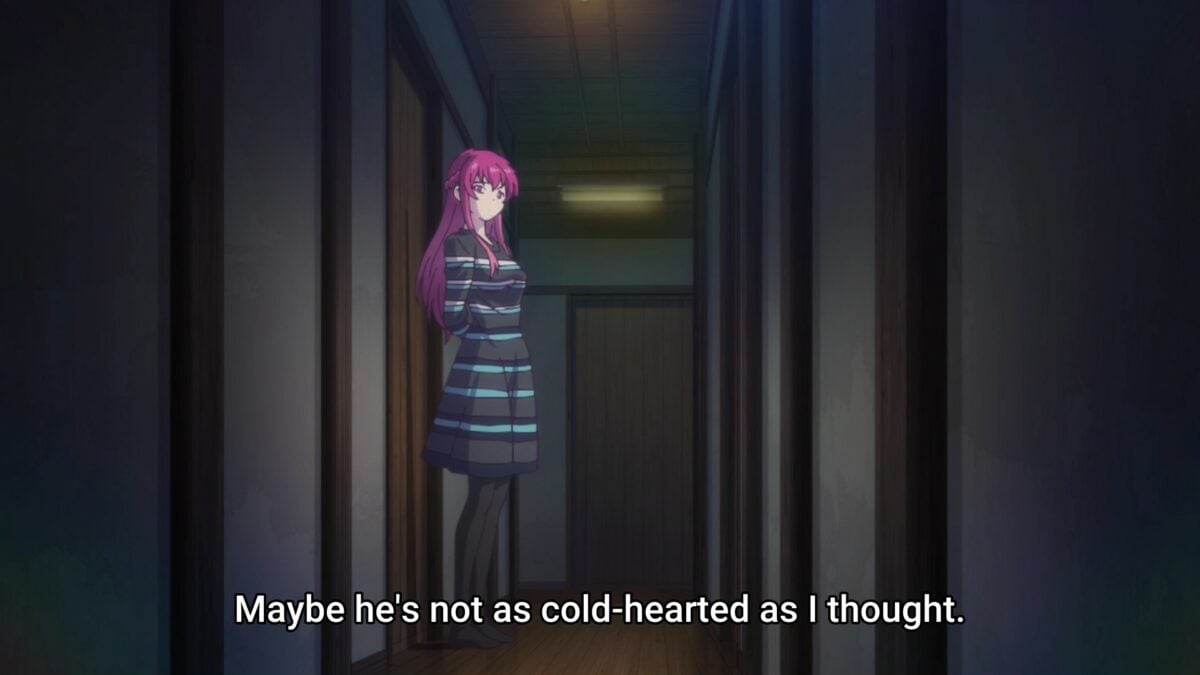
Regular bathos scenes in anime happen when a character describes an emotional moment to someone who would not know the context. This is the author talking to the audience through his characters’ mouths instead of people talking to each other. It punts me out of a scene and makes me roll my eyes. Another lazy bathos device is speaking out loud, so another character overhears the vulnerable person’s inner thoughts. That formula makes characters begin forming bonds without confrontation. Revealing those hidden feelings later in public is cringe-inducing.
The Bathos Melodrama Meter!
Goddess Café Terrace has the task of tying a harem fanservice cohabitation setting to a family drama. This is the first episode, so the pathos will be laid on extra thick as the Kasukabe financial and familial difficulties require a quick setup before we get to sexy interpersonal developments. Does it become bathos if you defuse a heavy mood with a naked roundhouse kick? You will have to judge for yourself. I’m optimistic that the pathos flashback scenes will be fewer after the season premiere.
Goddess Café Terrace Harem Points.
Harem dynamics are always contentious. How do you tell if one girl is “getting ahead” of the others in the race for the ultimate waifu position? Check out my introduction to the harem goddesses here. Taste is subjective, understandably, so I developed a better way to judge waifus in the harem marathon: Harem Entertainment Points! There are five criteria, and I will award Best Girl status for each episode.
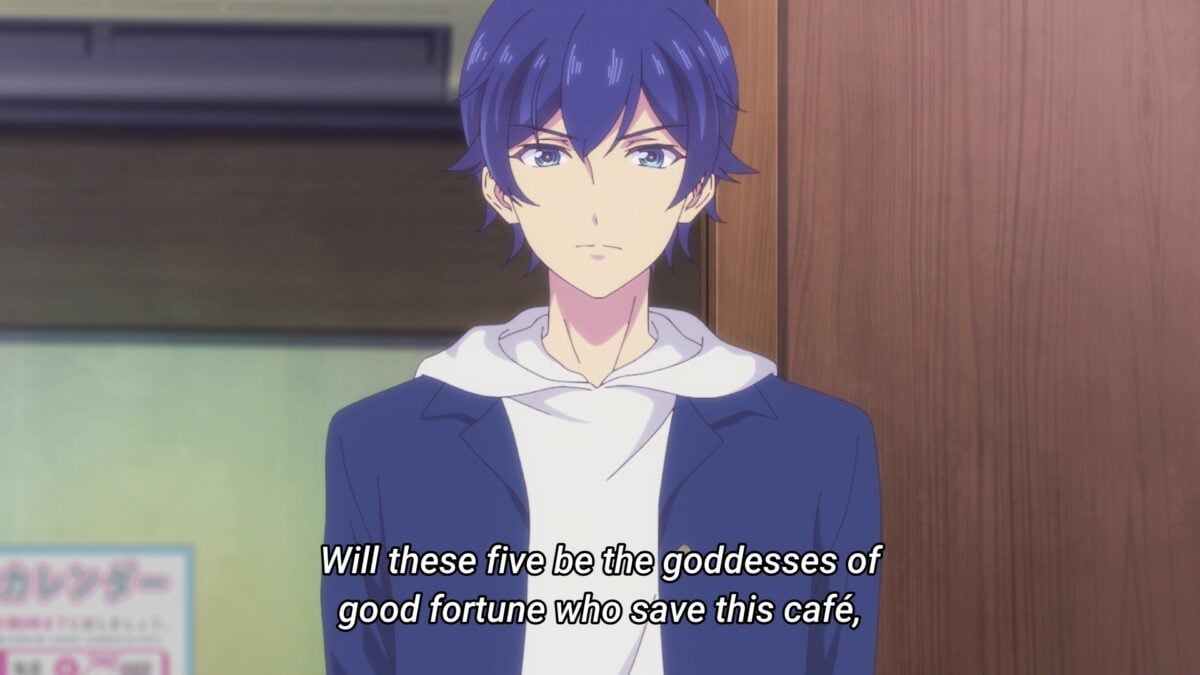
Protecting the Nest Points.
A harem needs a place for cohabitation fanservice accidents to happen. Anytime a girl acts to keep the family and home intact adds points to the harem master’s tally. This episode’s Nest Protector: Riho! She tried to manufacture blackmail material by taking pictures of Hayato with a half-naked woman. I like how she thinks!
Grandma’s Little Girl Points.
This method is a sneaky way to manufacture childhood friend points. If Hayato’s grandma approved, then it’s like they’re related already! Grandma’s Little Girl for this episode is Ouka. She can’t cook anything besides Hayato’s favorite rice pilaf.
Baka Charm Points.
Goofiness adds personality and cuteness to enhance sexiness. This is one for the audience. Perfect girls are unapproachable, but imperfections make them relatable. And exploitable for fanservice moments. Thank you, Ami-chan, for belatedly realizing that you flashed Hayato a view perfectly and that he called you dumb to your face.
Drunk Girl Points.
The only way to get girls to strip for sexy times. It’s also a staple of author Seo’s works to have sauced-out college girls somewhere in his stories. There won’t be any honest and sincere attempts at seduction until much later in a seinen drama like Goddess Terrace Café. Shiragiku’s baka charm of drunken horniness with a male musk fetish is as unfair as her cup size.
Cool Charm Points.
How do you get the audience and Hayato interested in the girls? Every girl has secrets, and girls form bonds by sharing those secrets. So, if one of the goddesses does it to Hayato, watch out! Akane, also the coolly-moody type, lets Hayato in on her secret passions. Writing songs and eating chocolate!
Heh.
What a jerk. Of course, this guy gets repaid by naked skin, sadism, and bondage. Goddess Café Terrace went straight to celestial light beams of censorship. I had hoped for more creative ways to block naughty lady bits from view. Why are five naked women too many? Hard disagree.
The opening theme music has pop music charm and a catchy, bouncy hook. The stock trading range bars look like a visual theme for Goddess Café Terrace. Ami-chan’s light bars already used it!
Who are these strange women living in Hayato’s house? Family, they claim. Here’s a drama point for reference: the five young women all came to work and live with Grandma Kasukabe within the last year. What happened during the first two years that Hayato was gone? Geez. The girls even paid for her funeral. Hayato starts Goddess Café Terrace in a deep hole for sympathy points.
Oho. Riho is the schemer of the goddesses. The plan: Seduce Hayato; Stuff happens; He agrees to let them stay at the house. “Stuff” does a lot of heaving lifting in this “plan.” Hayato has his own plan: Pave paradise and put up a parking lot. The dude has a mind for money. He expected more honey traps, but Hayato got a chocolate cigarette and wine trap instead. Riho’s secret weapon was the prim and proper Shiragiku! She’s a horny drunk with a male-smell fetish! And baka Ami’s sense of justice ruined Riho’s blackmail plans. Oops.
Here come the paradise-paving guys. What will make Hayato change his mind? A Spanish vocabulary lesson and grandma’s rice pilaf. Keikakudoori (計画通り, けいかくどおり, just as planned)! Hayato must fulfill his financial plans for “family” a few years earlier than expected. Can the goddesses help him turn a profit in one year?
Next time, secrets are revealed! Like, who wears those fancy string tie panties? Har. Hayato suggests a better title for the anime would have been “The Familia Café Terrace and its Goddesses of Poverty.” Hard to argue with that.
Goddess Café Terrace (Megami no Café Terrace, The Café Terrace and its Goddesses) streams on Crunchyroll.
Do you want to see more string panties? You’re in luck because J-List has Kaisen Chuui’s The Ultimate HIMOPAN Collection 2018-2020 now in stock. Pick up a copy today!


